post-war consensus
description: period in British political history, 1945 to 1970s
29 results
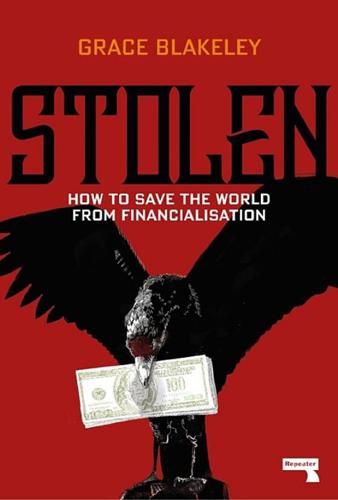
Stolen: How to Save the World From Financialisation
by
Grace Blakeley
Published 9 Sep 2019
The central argument of this book is that, having gorged themselves before the crash, today’s capitalists are running out of things to take. We are currently living through the death throes of finance-led growth. Just like the post-war consensus of the 1970s, the old model is crumbling before our eyes, leaving chaos and destruction in its wake. And just like the post-war consensus, the death of finance-led growth was inevitable and predictable. Marx showed that every kind of capitalist system is subject to its own contradictions: strains that arise from the normal functioning of the economic model — from businesses trying to make money, politicians trying to get votes, and people trying to survive.21 These dynamics have characterised the development of capitalism for centuries.
…
The welfare state developed, providing a safety net when the business cycle turned, as well as increasing the social wage and therefore workers’ bargaining power. And whilst the City grew, and retained its strong influence over government, the rentier class — landlords, speculators, and financiers — was much more constrained than it had been before. The post-war consensus could be enforced because the workers, who stood to benefit from Keynesian management of the economy, had emerged from the war more powerful than ever before, and they organised to make it happen. In this way, the rebalancing of power from capital to labour that came about as a result of the war was institutionalised in the post-war social and economic framework implemented in the 1940s.
…
The first oil price spike in 1973 drove an increase in inflation, which exceeded 20% in two years over the course of the 1970s, peaking at 27% in the year to August 1975. In the absence of strong unions, rising inflation driven by rising costs might not have been such a systemic problem. Under other circumstances, bosses would have laid off workers or reduced pay to cut costs. But with the post-war consensus still firmly in place, unions pressed for pay rises that kept pace with inflation. Able to bargain with and make demands on the state, the unions refused to back down. Nevertheless, as cost pressures mounted, unemployment rose. The state flitted between increasing spending to alleviate unemployment and cutting it to reduce inflation.
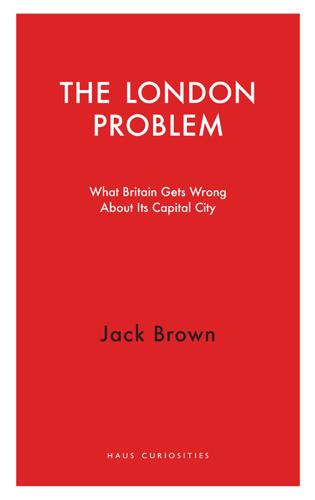
The London Problem: What Britain Gets Wrong About Its Capital City
by
Jack Brown
Published 14 Jul 2021
First, an Industrial Transference Board was established in 1928 to encourage the unemployed in struggling industrial areas to relocate to areas with jobs and training schemes – generally in London and the southeast.17 Then, the Special Areas Act of 1934 sought to ‘take work to the workers’, enabling the government to construct industrial premises and provide direct grants to the struggling regions in an attempt to stimulate economic growth.18 This second approach laid the groundwork for a post-war consensus in regional policy that would last for decades. London and the war The Second World War changed a great deal for London. Heavy bombing killed and injured citizens and flattened the capital’s buildings, while evacuation saw Londoners deliberately moved elsewhere. What’s more, two wartime inquiries actively encouraged the depopulation of the capital in the years after the war: the Barlow Commission on the ‘Distribution of the Industrial Population’, which reported in 1940, and Patrick Abercrombie’s 1943/1944 plans for the County of London and Greater London.
…
Barlow urged the decentralisation of industry from the UK’s major urban areas, both to assist struggling regional economies and to improve the nation’s ‘sprawling, ill-planned, chaotic, and congested’ cities.19 Abercrombie’s plans for London also encouraged ‘the removal of an appreciable amount of industry and commerce from Central London’ to enable reconstruction.20 But Abercrombie also promoted the ‘decentralisation’ of Londoners themselves: over a million people were to be encouraged out of crowded, polluted, and slum-ridden Inner London and into cleaner, greener, and more spacious new towns, garden cities, and suburbs.21 The Distribution of Industry Act 1945, described as the ‘foundation of British regional policy’, then took up Barlow’s cause.22 Subsequent post-war consensus on regional policy was dominated by what Jerry White calls the ‘London-as-problem paradigm’.23 Successive governments placed limits on economic activity in London, constraining the construction of, firstly, factories and, later, offices. The 1963 legislation that established the Greater London Council (GLC) contained a clause that made it illegal to advertise industrial opportunities in London.24 New office development in Central London was effectively banned by Labour’s George Brown in 1964, albeit temporarily.25 Meanwhile, governments intervened to incentivise, subsidise, and sometimes construct factories elsewhere in the country.
…
Investment was pushed out of the city and towards the suburbs in the ultimately frustrated hope that it might reach the rest of the country. In the most part, the furthest that new factories and offices were dispersed was Outer London and the south-east. All the while, London declined – and the UK economy did the same. Consensus over? Margaret Thatcher’s election in 1979 saw an end to this post-war consensus, as previewed in the Conservative manifesto: ‘Strategies and plans cannot produce revival, nor can subsidies.’26 Displacing jobs to ‘inefficient’ areas was seen as unwise, and funding for regional development was reduced.27 Instead, the Thatcher government shifted from a ‘regional’ to a ‘local’ approach to changing the fortunes of declining areas.28 Thatcher was no great lover of London.
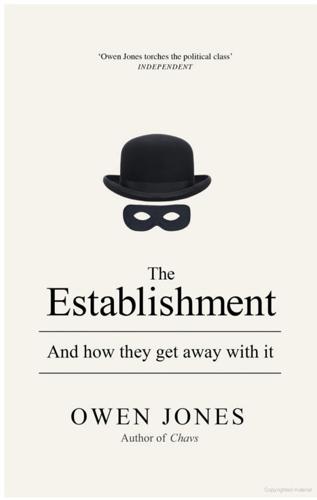
The Establishment: And How They Get Away With It
by
Owen Jones
Published 3 Sep 2014
‘We hoped that one or two policies would be taken up and succeed and the success of those would lead to more being done; it would be a cumulative thing,’ he says. ‘We never at the time envisaged how completely successful those ideas would be.’ Pirie’s Adam Smith Institute would succeed beyond his wildest dreams. By the mid-1970s, the post-war consensus was beginning to totter. The international framework for global finance, the Bretton Woods system, was unilaterally dismantled in August 1971 by a United States reeling from the cost of the Vietnam War. Two years later, oil-producing countries announced an embargo, causing an ‘oil-price shock’.
…
In the first decades after World War II, the Tories had been dominated by the paternalistic ‘One Nation’ tradition – to which Macmillan subscribed – founded by the nineteenth-century Tory Prime Minister Benjamin Disraeli. It was this group who – much to the disdain of the outriders – had accepted the post-war consensus, and who had reservations or fears about the new neo-liberal order. Under Thatcherism, they became marginalized to the point of non-existence. There are a number of reasons why the Tories have become the natural political representatives of the modern Establishment. Ideologically, Conservatives have no doubts about capitalism as a system.
…
This policing of the boundaries of political debate was illustrated by the prevailing attitude towards Ed Miliband after he assumed the leadership of the Labour Party in 2010. His older brother and fellow leadership contender, David Miliband, regarded as the safe Establishment candidate, had argued during the contest that Labour should learn from the Tory politician of the 1950s, R. A. (Rab) Butler, a key figure in encouraging the Conservatives to accept the post-war consensus. In the same vein, David Miliband suggested, Labour should avoid the ‘comfort zone’ of just opposing the Conservative-led government’s policies – including the rolling back of the state, which is being achieved by the cutting of public services. What he proposed, in short, was that Labour abandon even the semblance of a distinct political agenda.
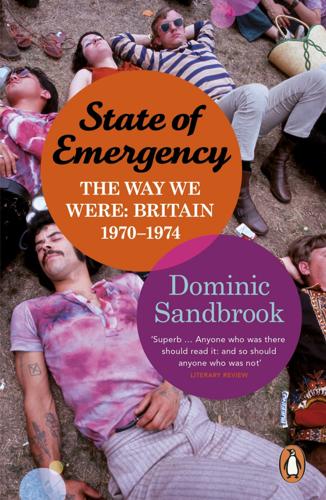
State of Emergency: The Way We Were
by
Dominic Sandbrook
Published 29 Sep 2010
The conflict in Northern Ireland, which dominated the headlines in the Heath years, actually claimed its first victim in 1966, while the environmentalist movement, apparently steeped in the values of the early 1970s, drew inspiration from books published by Rachel Carson and Barbara Ward in 1962 and 1966. Even Thatcherism, supposedly such a radical response to the traumas of the three-day week and the Winter of Discontent, built on a long prehistory of Conservative antipathy to the welfare state and the post-war consensus. Not surprisingly, historians have often been quick to challenge the exaggerated arch-Thatcherite vision of the 1970s as a period of unprecedented gloom and decline. It is certainly true that for many people living standards stagnated, and middle-class families in particular felt trapped between high taxes and soaring inflation.
…
Ten days after the election, The Times told its readers that the Tory victory would ‘produce greater changes in the way Britain is run than in any administration since the Attlee government’, a ‘revolution of the generations’ in which ‘most of the pre-1970 assumptions’ would inevitably be discarded. With its promises to cut taxes and to roll back the power of the state, Heath’s manifesto certainly promised something new, and he talked a great deal about setting industry free to stand on its own two feet. And yet the truth was that Heath remained a creature of the post-war consensus. For all his talk of change, he had been a loyal, dependable insider all his political life, and, as Harold Macmillan’s Chief Whip, he had been at the right hand of perhaps the most moderate, collectivist Conservative leader of the century. He was a technocrat, not a radical, a good staff officer who was never comfortable with ideas.
…
‘In several respects,’ said the Guardian at the time, she had been a ‘more egalitarian Minister than her Labour predecessor. Her support for primary schools, polytechnics, the raising of the school-leaving age, and the new nursery programme will all provide more help to working-class children than the Labour programme actually did.’24 The truth was that, far from breaking with the post-war consensus, Heath’s ministers still believed that the proper role of government was to administer a gently expanding welfare state, with more money being spent every year on health, education and social benefits. Behind this was the fatal assumption that, once the right dose of efficiency had been applied, Britain’s economy would set off on a new burst of steady growth, the pie expanding every year so that everyone could have a bigger slice.
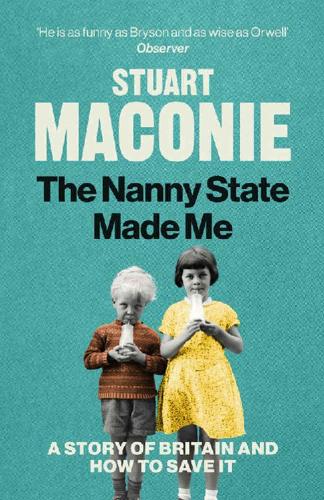
The Nanny State Made Me: A Story of Britain and How to Save It
by
Stuart Maconie
Published 5 Mar 2020
References to the lonely hills of Shropshire, old English hymn tune conventions, the poetry of George Crabbe and, in the song ‘Malayan Jelutong’, a glimpse of Nigel’s love of local history (knowledge of which has brought me to the Wirral on this lovely night), in the quotation from an 1891 essay by Edward W. Cox in the Transactions of the Historic Society of Lancashire and Cheshire. A ferociously smart and talented autodidact educated by the BBC, the local library and a moderately benevolent benefits system, Nigel Blackwell is a testament to the brilliance of the post-war consensus and the derided nanny state, a genuine native genius without entitlement or conceit.1 ‘My dad got me into local history as a kid. And when I got into it one of the first things you learn is that Birkenhead Park was the model for Central Park in New York. Now some of my dad’s generation and the old cynics of local history, they would raise their eyebrows at this.
…
Maybe we should embrace the joy of our communal peasant-hood, rise with our class rather than out of it, celebrate sometimes our warm sameness as well as our felt uniqueness, love it rather than deny it in favour of a narcissistic self-regard. For the forty long years of the dismantling of the post-war consensus, playwright David Hare has been chronicling it all in a series of acclaimed ‘state of the nation’ plays. Early in 2019, he gave his cold and sobering take on where we are now. At this point, I cannot imagine my country being civilised until it is back in the hands of people who believe that the state has a duty of care to all its citizens, and most particularly to the most deprived.
…
Perhaps a truly chastening humiliation, an economic and political catastrophe, the like of which Boris is eminently capable of delivering, is the slap in the face we need to wake us from our queasy hankerings for lost empires and foreign adventures and to realise just when our finest hour really was. Back when having helped save the world from the new Dark Age of Nazism we moved for a while into the broad sunlit uplands of the post-war consensus. Those few decades have been alternately mocked and romanticised but from here it’s hard not to see them as a Golden Age, the years of the NHS, the Arts Council, the National Parks, the Open University, the Third Programme and wonderful Radio 1, of the Beatles and the Stones, mods and rockers and folkies and hippies and punk, of soul and ska and roots rock reggae, of Larkin, Hughes, Pinter, Delaney, Saturday Night and Sunday Morning, Finney, Courtenay, Tushingham, Bates, Burton, the Festival of Britain, Olivier and the National Theatre, the ’66 World Cup, the achievements of an enlightened and responsible establishment in tandem with bright, brilliant generations of working- and middle-class kids raised on rationing and free school milk and orange juice, free specs and dentures, cheap buses, grammars and comprehensives and the whole flawed but beautiful public realm.
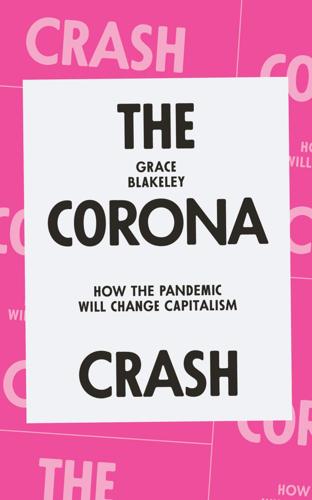
The Corona Crash: How the Pandemic Will Change Capitalism
by
Grace Blakeley
Published 14 Oct 2020
The system of capital controls and exchange rate pegging agreed upon at the 1944 Bretton Woods conference supported the development of social democracy in the West and facilitated the emergence of a unique period of high growth, low unemployment and falling inequality. Yet almost as soon as it had been implemented, the contradictions of the post-war consensus began to emerge. Controls on capital mobility were undermined by the emergence of the unregulated eurodollar markets in the City of London.24 With the world’s largest superpower facing new industrial competition abroad and an increasingly expensive war in Vietnam, Nixon in 1971 announced the end of the dollar’s convertibility to gold.
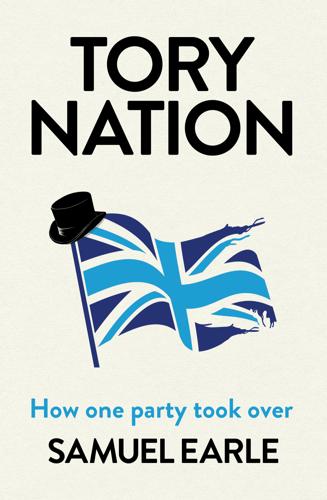
Tory Nation: The Dark Legacy of the World's Most Successful Political Party
by
Samuel Earle
Published 3 May 2023
Are Conservatives really so convinced that society cannot be planned along fairer lines, or do they just not like the sound of a fairer society? Was post-war Conservatism anything more than a tactic to hold on to power? According to the former Tory chancellor Rab Butler, one of the key figures in establishing the so-called ‘post-war consensus’, the party’s mission was ‘to maintain the old order by appeasing and accommodating the progressive forces which threaten it’. Quintin Hogg, another of the Middle Way’s architects, reasoned similarly: ‘If you do not give the people social reform,’ he warned, ‘they are going to give you social revolution.’21 Even amid blatant displays of duplicity, however, there is no doubting that many Conservatives believe that their ideology is best for others, not only themselves.
…
Most influential of all were the Institute of Economic Affairs, an ‘anti-Fabian society’ created with the help of Friedrich Hayek in 1957, and the Centre for Policy Studies, set up in 1974.36 These opaque institutions, dedicated to usurping the age of collectivism with the age of individualism, cultivated ties with newspapers like the Telegraph, The Times and the Financial Times and with multinational companies like Barclays and British Petroleum. Under Thatcher, the Conservatives were finally transformed in their image – and after her victory in 1979, both Labour and whatever was left of the post-war consensus were swept aside. A new consensus was in the making, and Labour would never look the same again. David Edgerton acidly refers to James Callaghan, who had replaced Wilson in 1976 and then lost to Thatcher in 1979, as ‘the last Labour prime minister’.37 * * * In 1997, after eighteen years of Tory rule, Blair brought Labour back to power – in body, if not in soul.
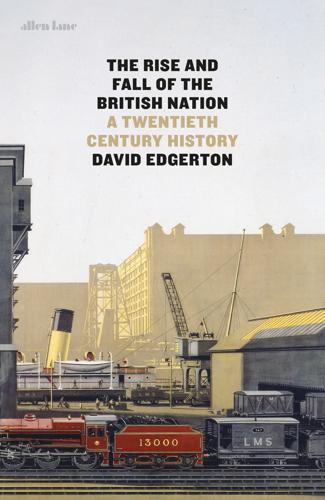
The Rise and Fall of the British Nation: A Twentieth-Century History
by
David Edgerton
Published 27 Jun 2018
She campaigned for a yes vote in the referendum. Both came into their moment of greatest power in the late 1970s and early 1980s: Margaret Thatcher as prime minister, Tony Benn as leader of a Labour left which was able to change the policies of the Labour Party very substantially. If there had ever been a post-war consensus they would both certainly have broken it. Margaret Thatcher became prime minister in 1979. Under her determined leadership, the trade unions were brought to heel, and the British decline, claimed her supporters, finally began to be reversed. Industries nationalized in the 1940s and earlier and later were now privatized and liberalized.
…
This was a period with high defence spending, a clear bipartisan commitment to national nuclear weapons, to close relations with the US, to the capitalist economy and to limited welfare expenditure. All this was threatened in the 1970s by the rise of the unions and the left in the Labour Party. Thus, the 1979 Tory manifesto did not attack a post-war consensus, but what had happened in the recent past, pointing to the fact that Labour governments had dominated by being in office for eleven out of the previous fifteen years. Certainly in some respects the 1974 Labour programme broke with the previous one, but the really big break came after 1979. By 1983 the left had pushed the Labour Party into a position which involved withdrawal from the EEC, rejection of nuclear weapons and elimination of US nuclear bases, and a strong dose of nationalist economic planning.
…
Certainly in some respects the 1974 Labour programme broke with the previous one, but the really big break came after 1979. By 1983 the left had pushed the Labour Party into a position which involved withdrawal from the EEC, rejection of nuclear weapons and elimination of US nuclear bases, and a strong dose of nationalist economic planning. By this standard the Conservative Party certainly stood for the post-war consensus in substance though not in style.2 And yet, one could also see the Labour programme of 1983 as a plea for a return to the past. Though it was never expressed in this way Labour advocated the national, protected economy, with an interventionist state, outside the EEC, which had been the post-war norm.
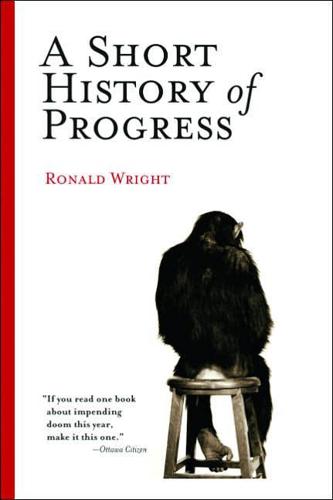
A Short History of Progress
by
Ronald Wright
Published 2 Jan 2004
After the Second World War, a consensus emerged to deal with the roots of violence by creating international institutions and democratically managed forms of capitalism based on Keynesian economics and America’s New Deal. This policy, though far from perfect, succeeded in Europe, Japan, and some parts of the Third World.60 (Remember when we spoke not of a “war on terror” but of a “war on want”?) To undermine that post-war consensus and return to archaic political patterns is to walk back into the bloody past. Yet that is what the New Right has achieved since the late 1970s, rewrapping old ideas as new and using them to transfer the levers of power from elected governments to unlected corporations — a project sold as “tax-cutting” and “deregulation” by the right’s courtiers in the media, of which Canada certainly has its share.
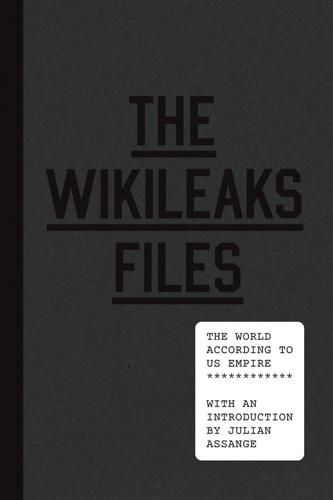
The WikiLeaks Files: The World According to US Empire
by
Wikileaks
Published 24 Aug 2015
From the Korean perspective, Koizumi’s visits to Yasukuni imply that Japanese leaders are moving in the direction of denying the validity of the verdicts handed out by the war crimes tribunal. Okonogi [a Japanese commentator] disagrees, stating that Koizumi remains “within the post-war consensus,” but acknowledged that his visits to Yasukuni have confused that message. More disturbing for the ROK, Okonogi suggested, is the fact that Chief Cabinet Secretary Shinzo Abe has so far “obscured” his position on the issue by saying the interpretation of history is a job for historians. Abe, Okonogi added, may be “outside the post-war consensus.” According to ROK Embassy First Secretary Chung, an even bigger concern within the ROKG is that Foreign Minister Taro Aso might become PM.
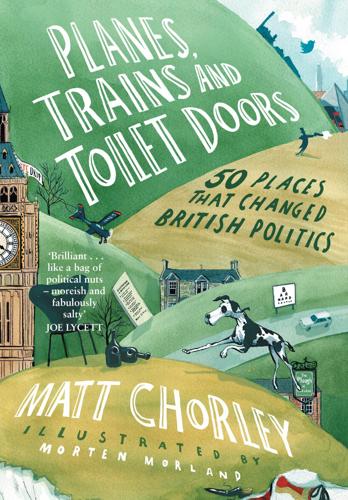
Planes, Trains and Toilet Doors: 50 Places That Changed British Politics
by
Matt Chorley
Published 8 Feb 2024
Woof woof’ was banned by the courts to prevent the pending trial being prejudiced by the press. That job, it seemed, belonged to the presiding judge. Relieved, Thorpe left court ‘wearing a brown trilby at a jaunty angle’, The Times reported the next day. He was, perhaps, the last man in Britain still wearing a hat. Times had changed. The 1970s had been a decade in which the post-war consensus and deference had crumbled. Thorpe was a symbol of the grubbiness that had infected a political Establishment who had brought industrial action, social unrest and political chaos to a country by now crying out for change. Thatcher, as a woman and someone of impeccable personal background, promised to deliver it.
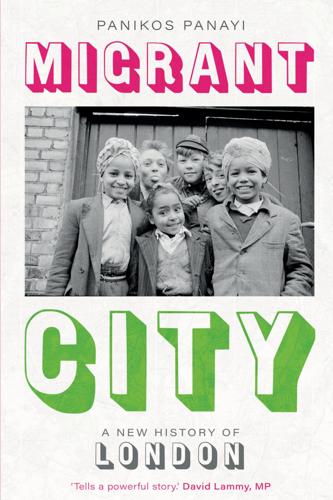
Migrant City: A New History of London
by
Panikos Panayi
Published 4 Feb 2020
Such centres include New York, Frankfurt, London and Tokyo, although the last of these has experienced relatively little immigration compared with the other three.5 These new global cities not only contain diverse populations, they also have the characteristics of a hierarchical division of labour linked with neo-liberal economics, which has given rise not simply to an era of unprecedented growth (despite the 2008 financial crash) but also increasing inequalities compared with the period of the ‘post-war consensus’ covering the four decades after the end of the Second World War when Britain, for example, would experience the most egalitarian era in its history. These new global cities, epitomized by London, therefore appear to share several characteristics, above all: the internationalization of their economy through the entry of firms from other parts of the world; the increasing ethnic diversity of their workforce and population; and, as a consequence of the first two, increasing inequality.6 Such assumptions lack historical perspective, viewing the late twentieth and early twenty-first centuries in particular against the background of the relative equality of the post-war consensus years; failing to take account of the history of globalization, which has impacted upon everyday life since the European ‘discovery’ of the Americas; as well as ignoring the role of local, national, continental and international migration in the evolution of many of the major metropolises which exist in the world today over decades if not centuries.
…
These new global cities, epitomized by London, therefore appear to share several characteristics, above all: the internationalization of their economy through the entry of firms from other parts of the world; the increasing ethnic diversity of their workforce and population; and, as a consequence of the first two, increasing inequality.6 Such assumptions lack historical perspective, viewing the late twentieth and early twenty-first centuries in particular against the background of the relative equality of the post-war consensus years; failing to take account of the history of globalization, which has impacted upon everyday life since the European ‘discovery’ of the Americas; as well as ignoring the role of local, national, continental and international migration in the evolution of many of the major metropolises which exist in the world today over decades if not centuries.
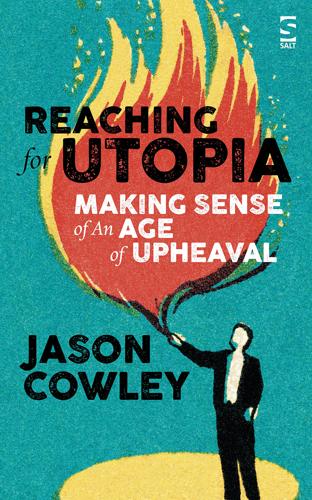
Reaching for Utopia: Making Sense of an Age of Upheaval
by
Jason Cowley
Published 15 Nov 2018
And so, it is understandable that its traditional constituencies in working-class and middle-class communities lost confidence that social-democratic parties could be the vehicle either for a renewed sense of community and mutual responsibility or for collective democratic projects. JC Is it also because trust has been lost in the state – because of the memory of the economic failures of the mid-to-late 1970s, the unravelling of the post-war consensus, stagflation and so on? MS That has contributed to a loss of confidence in the state but I think a further source of lost confidence in the state is that, traditionally, the democratic state has as one of its primary purposes to be a vehicle for self-government, to enable citizens to have some meaningful say in how they are governed.

Liberalism at Large: The World According to the Economist
by
Alex Zevin
Published 12 Nov 2019
The Economist thus came to function as both an arm of the wartime state, and an open line of communication between it and the City of London.4 Nowhere was this dual role more in evidence than in the founding documents of the future welfare state. Not only did Crowther have a hand in the Beveridge Report, as well as its sequel Full Employment and a Free Society in 1944, he shaped the reception to them in financial circles, revealing the aims and strict limits baked into the post-war consensus as the Economist envisioned it. Geoffrey Crowther Going Up Crowther sought to transform the Economist, often with singular ruthlessness, so that neither it nor its editor would be easy to ignore in the debates over economic planning that were sure to follow the Second World War. His route to the editor’s chair was familiar: born in 1907 to a middle-class family in Yorkshire, where his father taught agricultural chemistry at the University of Leeds, he was a gifted student, obtaining a scholarship in modern languages to Clare College, Cambridge.
…
‘Smut without Fire’, 30 March 1963; ‘After Mr Profumo’, 8 June 1963; ‘Prime Minister’s Crisis’, 15 June 1963; ‘Implications’, 26 October 1963. 171.‘Mr Butskell’s Dilemma’, 13 February 1954. This composite Chancellor – blending the Conservatives’ R. A. Butler and Labour’s Hugh Gaitskell – has passed into legend as a symbol of the post-war consensus between the two main parties on macroeconomic policy. Neil Rollings, ‘Poor Mr Butskell: A Short Life, Wrecked by Schizophrenia’, Twentieth Century British History, January 1994, pp. 186–87, 196, 199. Macrae’s use of the term supports this, but only in part. On the one hand, Macrae welcomed the moderating influence of ‘Mr Butskell’ on the wilder elements in both parties – in particular Labour and its ‘graver irresponsibilities’.
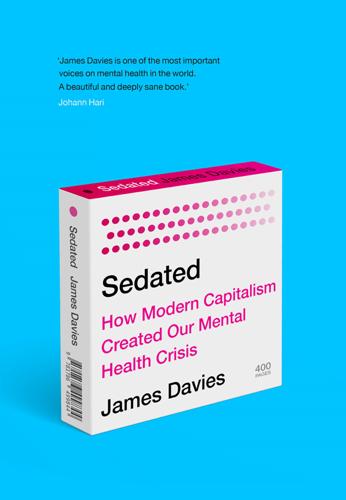
SEDATED: How Modern Capitalism Created Our Mental Health Crisis
by
James. Davies
Published 15 Nov 2021
What Thatcher’s government saw as tried and failed in the 1970s was the very same economic worldview that had, during the 1950s and 1960s, created widespread economic prosperity and growth. Whatever names have been given to this previous paradigm (‘social democracy’, ‘regulated capitalism’, ‘the post-war consensus’, ‘Keynesian capitalism’), they all point to a style of capitalism in which the state played a more central role in the economy than it does today (discounting the emergency measures during COVID, of course). In essence, this period of post-war ‘regulated capitalism’ embraced the idea that the state could create a prosperous and equal society by playing a central role in regulating the economy, developing national institutions and infrastructure, investing heavily in public services, and restraining market forces.
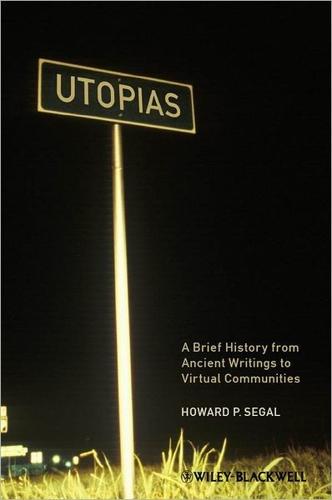
Utopias: A Brief History From Ancient Writings to Virtual Communities
by
Howard P. Segal
Published 20 May 2012
Yet, in some ways, Whyte’s greater legacy is the early critique of expertise, and not just in corporations but throughout American and Western European life. Nowhere was expertise taken more for granted than in science and technology and, as already indicated, in the social sciences that emulated them. Officially, it was President Eisenhower’s 1961 Farewell Address that began the unraveling of the post-war consensus over science and technology policy, a consensus that fell apart over the Vietnam War, the “Star Wars” missile defense system, urban crises, environmental disasters, and the higher education–military research nexus—the focus of Eisenhower’s concern. By the mid-1960s, Growing Expectations of Realizing Utopia 115 federal support of science was being criticized as inattentive to social issues in a manner reminiscent of Senator Kilgore, but now in a climate of criticism rather than of celebration of American life.
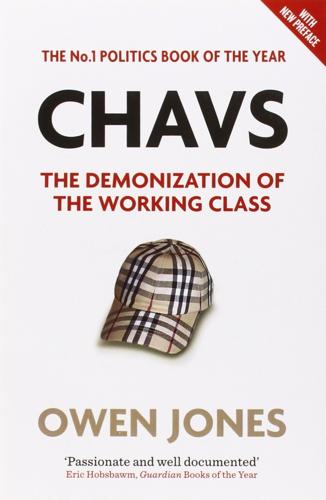
Chavs: The Demonization of the Working Class
by
Owen Jones
Published 14 Jul 2011
Few men can claim to have had as much influence over modern Britain as Keith Joseph. The son of a construction magnate, Joseph was the most prominent figure of the Tory right in the early 1970s. When the Conservatives were defeated in two successive general elections in 1974, Joseph became one of the leaders of a new breed of Tory who rejected the post-war consensus of welfare capitalism that had been upheld by earlier Conservative governments. Instead, they wanted to curb union power, sell off state-owned industries and return to nineteenth-century principles of Iaissez-faire capitalism. For Joseph the road to Damascus moment came when Tory Prime Minister Edward Heath was booted from office, after having taken on the miners and lost.
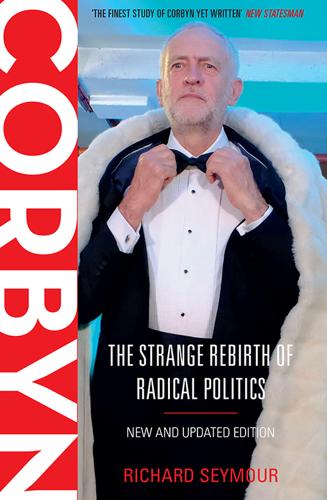
Corbyn
by
Richard Seymour
Even the famously liberal Home Secretary Roy Jenkins tilted the balance of criminal justice policy in an authoritarian direction with his contribution to Britain’s repertoire of ‘anti-terrorism’ laws, the 1974 Prevention of Terrorism Act authorising internment and jury-less trials in Northern Ireland, while the Criminal Law Act introduced further restrictions on organised labour.33 The authoritarianism of New Labour was of a different order, but hardly unthinkable in light of the record of social democracy in its heyday. The post-war consensus was also bought in part with American dollars, which ensured Britain’s orientation in a new axis of power which demanded continuity in foreign policy justified by a staunch anti-communist line. Despite manifesto commitments and pre-election insinuations, Labour’s Ernest Bevin had promised on election day, 1945, that the new government’s foreign policy would not differ from the previous one.
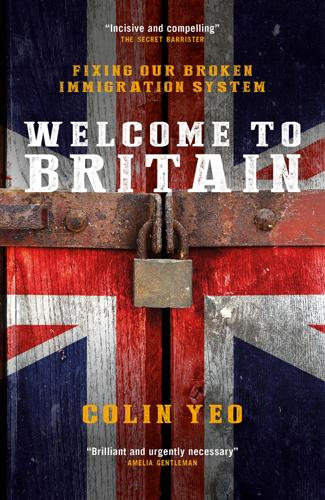
Welcome to Britain: Fixing Our Broken Immigration System
by
Colin Yeo;
Published 15 Feb 2020
The British public were hostile, and politicians of all hues legislated repeatedly in the 1960s, 1970s and early 1980s to restrict immigration. Similarly, after 2004 immigration from the expanded European Union was essentially an accident, and Brexit was the resulting backlash. This is not to say things cannot get worse, though. Since 2010, the post-war consensus of limiting immigration but also preventing and suppressing race discrimination has been quietly abandoned. The first part of that equation has entirely usurped the second. Because of the net migration target discussed in Chapter 2, and by means of the hostile environment policies discussed in Chapter 3, we have seen the introduction of a raft of policies actively encouraging race discrimination in day-to-day life.
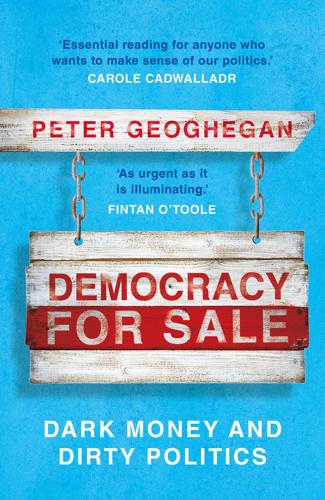
Democracy for Sale: Dark Money and Dirty Politics
by
Peter Geoghegan
Published 2 Jan 2020
* After the Second World War, a widely shared consensus pervaded across most Western liberal democracies. Mindful of the communist enemy that needed to be kept at bay, both left and right broadly agreed on high taxes, heavy regulation and a generous welfare state that, on some level, demonstrated its respect for social cohesion and solidarity. The breakdown of this post-war consensus began in the mid-1970s, and was exacerbated by the end of the Cold War. Since the fall of the Eastern Bloc, the drive to revert to a more ruthless market fundamentalism and a minimal state has been increasingly strong, promoted, of course, by the numerous libertarian think tanks documented in this book.
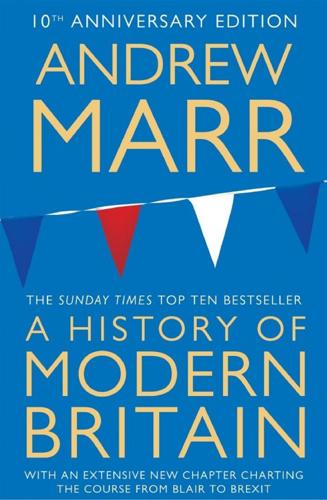
A History of Modern Britain
by
Andrew Marr
Published 2 Jul 2009
In the Britain of the forties and fifties these views made him an eccentric. Once this country had been the world centre for liberal economics, famous for its people’s distrust of big government – a land without identity cards or intrusive central government. Now even its Liberal Party was a keen supporter of the post-war consensus (the party, after all, of Beveridge and Keynes). There were some standing out against it. Not many, but some. Their unlikely spiritual teacher was Friedrich von Hayek, an exiled Viennese economist, who came from the very heart of cosmopolitan intellectualism where socialism, communism, Freudianism and fascism contended.
…
It would mean lower bills for many homeowners and it would make local councils more responsive to their voters. On the other hand, it would mean a new tax for approximately 20 million people which would be regressive. The poorest in the land would pay as much as the richest. This broke a principle which stretched much further back that the ‘post-war consensus’. The idea had been knocking around for some years before it was picked up by the government and subjected to a long and intense internal debate, which we will skip, except to note that not everyone thought it was a good idea. The poll tax was sold to Mrs Thatcher by her Environment Secretary, Kenneth Baker, at a seminar at Chequers in 1985, along with the nationalization of the business rate.
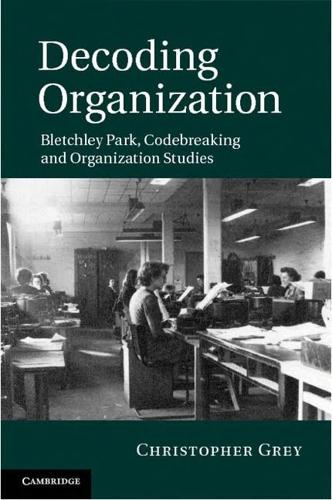
Decoding Organization: Bletchley Park, Codebreaking and Organization Studies
by
Christopher Grey
Published 22 Mar 2012
It framed my parents’ childhood experience – my father, being in a reserved occupation, was a very youthful member of the Home Guard; my mother, then a schoolgirl, recalls seeing the skyline lit up by flames from the bombing of Coventry in 1940. Many of my school teachers had fought in ‘the war’ – what war it was needed no elaboration, it was a term in general currency. We were still living, in the 1960s and 1970s, in the ‘post-war consensus’, whilst the politics of the 1980s was often conceived of in terms of a breaking with that consensus and so was still defined by it. Culturally, war films, television dramas set in the war, Airfix models of Spitfires and Lancasters and so on all formed the background to my childhood. Indeed, this has hardly diminished, and perhaps in some ways has increased: turn on the television today in Britain and at almost any time you will find films and documentaries about the war; and commemorations of anniversaries of key events abound.
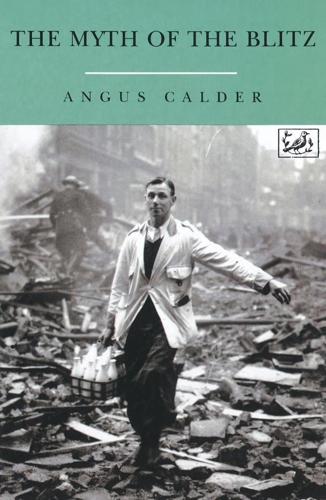
The Myth of the Blitz
by
Angus Calder
Published 28 Jun 2012
He is confronted by antagonistic voices from blitzed Clydebank, blitzed London. The MPs who witness the play are respectively a smooth ‘Conservative-Labour’ government man and a guilt-ridden drunk labelled ‘Socialist-Labour’, so Brenton’s target is wider than his retrospective preface suggests. Post-war ‘consensus’, Labour ‘sell out’, Tory ‘compromise’ are all implicated in a tyranny which betrays the professed aim of People’s War. The brilliant film The Long Good Friday, originally conceived by its scriptwriter Barrie Keeffe in 1977, finally-released, as directed by a Scot, John Mackenzie, in 1981, makes, though obliquely, a subtler commentary on the relevance of the Myth of the Blitz in the era of Callaghan–Thatcher.
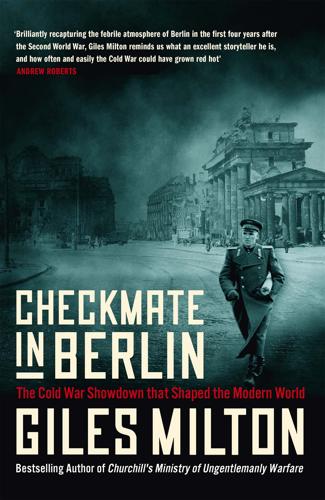
Checkmate in Berlin: The Cold War Showdown That Shaped the Modern World
by
Giles Milton
Published 26 May 2021
‘We shall have in him a loyal collaborator,’ said Eden after that first meeting, ‘and I am much heartened by this first conversation.’ But the new president was to be tested to the limits by the sixteen-day gathering in Potsdam. The principal task facing the three victorious leaders was to establish a post-war consensus in Europe, with a focus on the occupation of Germany and Berlin, and the fate of Soviet-occupied Poland. The setting for these discussions was both regal and homely: Cecilienhof was in Potsdam, a half-hour drive from Berlin. The last imperial palace of the Hohenzollern dynasty, whose end had come with the abdication of Kaiser Wilhelm II in 1918, it was a mock-Elizabethan fantasy, replete with stone portals, diamond-paned leaded windows (all ersatz Tudor) and a battalion of red-brick chimneys.
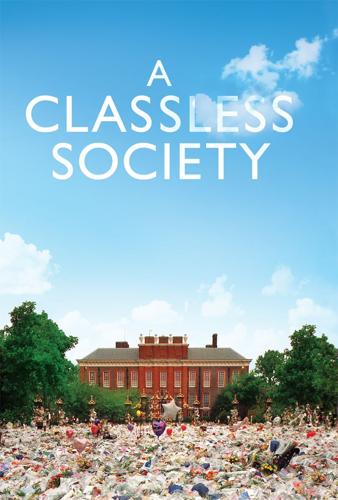
A Classless Society: Britain in the 1990s
by
Alwyn W. Turner
Published 4 Sep 2013
It was not until the re-election of the Labour Party in 2001, and the second decisive defeat of the Conservatives, that things seem to have been settled in Britain. And there is, I think, a settlement to be recorded. The social upheavals of the 1960s, when a cultural revolution began to challenge the legitimacy of the established order, were followed by the economic and industrial travails of the 1970s. Between them, they destroyed the post-war consensus, which had always been a typically British muddled compromise of a mixed economy and a shared Christian heritage, held together by the fantasy of growing prosperity. That came to an end in September 1976, with James Callaghan’s speech to the Labour Party conference. ‘The cosy world we were told would go on for ever, where full employment would be guaranteed by a stroke of the chancellor’s pen,’ he said; ‘that cosy world is gone.’
…
Index Aberfan disaster ref 1 abortion ref 1, ref 2, ref 3 About a Boy (Nick Hornby) ref 1 Absolutely Fabulous (TV) ref 1, ref 2, ref 3 Adam Smith Institute ref 1, ref 2 Adams, Gerry ref 1, ref 2 Adams, Tony ref 1 Admiral Duncan pub bombing ref 1 Afghanistan ref 1 age of consent ref 1, ref 2, ref 3, ref 4, ref 5 Aherne, Caroline ref 1, ref 2 AIDS ref 1, ref 2, ref 3 air industry, deregulation of ref 1 air traffic control ref 1 Aitken, Jonathan ref 1, ref 2, ref 3 Al-Fayed, Dodi ref 1, ref 2 Al-Fayed, Mohammed ref 1, ref 2, ref 3 Albarn, Damon ref 1, ref 2, ref 3, ref 4, ref 5 alcohol see drinking culture alcopops ref 1 Alder Hey Children Hospital ref 1 Allason, Rupert ref 1, ref 2, ref 3, ref 4, ref 5, ref 6 Allen, Keith ref 1 Allitt, Beverley ref 1 Amazon ref 1 American cultural influences ref 1 Amess, David ref 1 Amiel, Barbara ref 1 Amis, Kingsley ref 1 Amis, Martin ref 1 anal intercourse ref 1 The Anarchist (Tristan Hawkins) ref 1 Anderson, Janet ref 1 Andrew, Prince ref 1, ref 2, ref 3, ref 4, ref 5 Anne, Princess ref 1, ref 2, ref 3 Archer, Jeffrey ref 1, ref 2, ref 3, ref 4 armed forces ref 1, ref 2, ref 3, ref 4 arms-to-Iraq affair ref 1, ref 2 Arsenal ref 1, ref 2 ASBOs ref 1 Ashby, David ref 1 Ashcroft, Michael ref 1 Ashdown, Paddy ref 1, ref 2, ref 3, ref 4, ref 5, ref 6, ref 7, ref 8, ref 9, ref 10, ref 11, ref 12, ref 13, ref 14, ref 15, ref 16, ref 17, ref 18, ref 19, ref 20 Ashton, Joe ref 1 Asian films and music ref 1, ref 2 asylum seekers ref 1, ref 2 Atherton, Mike ref 1 Back to Basics agenda ref 1, ref 2, ref 3, ref 4 Bacon, Francis ref 1 Baddiel, David ref 1, ref 2, ref 3, ref 4, ref 5, ref 6, ref 7, ref 8, ref 9, ref 10, ref 11, ref 12 Baker, Danny ref 1, ref 2 Baker, Kenneth ref 1, ref 2, ref 3, ref 4, ref 5, ref 6 Ball, Zoë ref 1, ref 2, ref 3, ref 4 Balls, Ed ref 1, ref 2, ref 3, ref 4, ref 5, ref 6 Bangles ref 1 Banham, Sir John ref 1 Bank of England ref 1, ref 2 Banks, Morwenna ref 1 Banks, Tony ref 1, ref 2, ref 3, ref 4, ref 5, ref 6 Barnett Formula ref 1 Bashir, Martin ref 1 Bateman, Nick ref 1 Bayley, Stephen ref 1, ref 2, ref 3 Beatles ref 1, ref 2, ref 3, ref 4, ref 5 Beckett, Margaret ref 1, ref 2, ref 3, ref 4 Beckham, David ref 1, ref 2, ref 3, ref 4, ref 5 Beckham, Victoria ref 1, ref 2, ref 3, ref 4 Bell, Martin ref 1, ref 2, ref 3, ref 4 Bell, Stuart ref 1 Bell, Tim ref 1 Benn, Hilary ref 1, ref 2, ref 3 Benn, Tony ref 1, ref 2, ref 3, ref 4, ref 5, ref 6, ref 7, ref 8, ref 9, ref 10, ref 11, ref 12, ref 13, ref 14, ref 15, ref 16, ref 17, ref 18, ref 19, ref 20, ref 21, ref 22, ref 23, ref 24, ref 25, ref 26, ref 27, ref 28, ref 29, ref 30, ref 31, ref 32, ref 33 Bennett, Alan ref 1, ref 2 Berlin Wall, fall of ref 1 The Best a Man Can Get (John O) ref 1 Best, George ref 1 Between the Lines (TV) ref 1, ref 2 The Big Breakfast (TV) ref 1, ref 2 Big Brother (TV) ref 1, ref 2, ref 3, ref 4 The Big Issue ref 1 Billy Elliot (film) ref 1 Birmingham pub bombings ref 1 Birmingham Six ref 1 Birt, John ref 1 Black, Conrad ref 1, ref 2 Black Lace ref 1, ref 2, ref 3 Black Wednesday ref 1, ref 2, ref 3, ref 4, ref 5, ref 6, ref 7, ref 8 Blair, Cherie ref 1, ref 2, ref 3, ref 4, ref 5 Blair, Tony ref 1, ref 2, ref 3, ref 4, ref 5, ref 6, ref 7, ref 8, ref 9, ref 10, ref 11, ref 12, ref 13, ref 14, ref 15, ref 16, ref 17, ref 18, ref 19, ref 20, ref 21, ref 22, ref 23, ref 24, ref 25, ref 26, ref 27, ref 28, ref 29, ref 30, ref 31, ref 32, ref 33, ref 34, ref 35, ref 36, ref 37, ref 38, ref 39, ref 40, ref 41, ref 42, ref 43, ref 44, ref 45, ref 46, ref 47, ref 48, ref 49 on his achievements ref 1 Blair–Brown rivalry ref 1, ref 2, ref 3, ref 4 and bombing of Iraq ref 1 and cabinet politics ref 1 Catholic faith ref 1 cavalier approach to facts ref 1, ref 2 and Clause IV ref 1, ref 2 ‘control freak’ ref 1 and Cool Britannia ref 1, ref 2 ‘demon eyes’ poster ref 1 and devolution ref 1, ref 2 and Diana death ref 1, ref 2, ref 3, ref 4, ref 5, ref 6, ref 7, ref 8 Ecclestone affair ref 1, ref 2 and electoral reform ref 1 fascination with wealth ref 1 flaunting of personal life ref 1 and fox hunting ban ref 1 Granita pact ref 1, ref 2 and John Smith death ref 1, ref 2 Labour leadership ref 1, ref 2, ref 3 leadership style ref 1 and Lib–Lab ties ref 1 loses support ref 1, ref 2, ref 3, ref 4, ref 5 on Major ref 1 marginalisation of Parliament ref 1 and the Millennium Dome ref 1, ref 2, ref 3 and monarchical reform ref 1 moral crusade ref 1, ref 2 no experience of government ref 1, ref 2 and the Northern Ireland peace process ref 1, ref 2, ref 3 oratory ref 1 and overseas interventions ref 1, ref 2, ref 3, ref 4, ref 5, ref 6, ref 7, ref 8 patriotic rhetoric ref 1 persona ref 1, ref 2, ref 3 repackaged Conservatism ref 1, ref 2, ref 3 show-business element ref 1, ref 2, ref 3, ref 4, ref 5 and the single currency ref 1, ref 2 Third Way politics ref 1, ref 2 and the trades unions ref 1 vision for the future ref 1, ref 2 Blake, Peter ref 1 Blunkett, David ref 1, ref 2, ref 3, ref 4, ref 5, ref 6, ref 7, ref 8, ref 9, ref 10, ref 11, ref 12, ref 13, ref 14, ref 15, ref 16, ref 17, ref 18, ref 19, ref 20, ref 21, ref 22, ref 23, ref 24, ref 25, ref 26, ref 27 Blur ref 1, ref 2, ref 3, ref 4, ref 5, ref 6, ref 7, ref 8, ref 9, ref 10, ref 11 Boateng, Paul ref 1 body piercing ref 1 Booker, Christopher ref 1 Booth, Hartley ref 1 Boothroyd, Betty ref 1, ref 2, ref 3 Bottomley, Virginia ref 1, ref 2, ref 3, ref 4, ref 5, ref 6, ref 7, ref 8, ref 9, ref 10 Bowie, David ref 1, ref 2, ref 3, ref 4, ref 5 boxing ref 1, ref 2 Boycott, Geoffrey ref 1, ref 2 Boyle, Danny ref 1, ref 2, ref 3 Bragg, Billy ref 1, ref 2 Bragg, Melvyn ref 1 Brand, Jo ref 1, ref 2, ref 3 Brandreth, Gyles ref 1, ref 2, ref 3, ref 4, ref 5, ref 6, ref 7, ref 8, ref 9, ref 10, ref 11, ref 12, ref 13 Branson, Richard ref 1, ref 2, ref 3 Brass Eye (TV) ref 1, ref 2 Brassed Off (film) ref 1, ref 2 Braveheart (film) ref 1 Bremner, Rory ref 1, ref 2 Britain (Mark Leonard) ref 1 British National Party (BNP) ref 1, ref 2, ref 3 British Rail ref 1, ref 2 British Social Attitudes Survey ref 1, ref 2 Britishness ref 1, ref 2, ref 3 Britpop ref 1, ref 2, ref 3, ref 4, ref 5, ref 6, ref 7 The Brittas Empire (TV) ref 1, ref 2 Brooke, Peter ref 1 Brookmyre, Christopher ref 1, ref 2 Brookside (TV) ref 1, ref 2 Brown, Arnold ref 1 Brown, Craig ref 1, ref 2, ref 3, ref 4, ref 5, ref 6 Brown, Gordon ref 1, ref 2, ref 3, ref 4, ref 5, ref 6, ref 7, ref 8, ref 9, ref 10, ref 11, ref 12, ref 13, ref 14, ref 15, ref 16, ref 17, ref 18, ref 19, ref 20, ref 21, ref 22, ref 23, ref 24, ref 25, ref 26, ref 27 Blair–Brown rivalry ref 1, ref 2, ref 3, ref 4 bullying ref 1 on class differences ref 1 and devolution ref 1 dislike of Liberal Democrats ref 1 Granita pact ref 1 leadership contest ref 1, ref 2 and monetary policy ref 1, ref 2 personal awkwardness ref 1, ref 2 prime minister ref 1 ‘psychological flaws’ ref 1 and the single currency ref 1 Brown, James ref 1, ref 2, ref 3 Brown, Nick ref 1, ref 2 Bruton, John ref 1 Bryan, John ref 1 BSE crisis ref 1, ref 2, ref 3 BSkyB ref 1 Buckley, Fiona ref 1 Bulger, James ref 1, ref 2, ref 3 bulldog, British ref 1 Burchill, Julie ref 1, ref 2 Burdon, Eric ref 1 Bush, George ref 1, ref 2, ref 3, ref 4, ref 5 Byers, Stephen ref 1, ref 2 Cable, Vince ref 1, ref 2 Cadbury, Peter ref 1 Caine, Michael ref 1 Calcutt Enquiry ref 1 Callaghan, James ref 1, ref 2, ref 3, ref 4, ref 5, ref 6, ref 7, ref 8, ref 9, ref 10 Cameron, David ref 1, ref 2, ref 3 Campbell, Alastair ref 1, ref 2, ref 3, ref 4, ref 5, ref 6, ref 7, ref 8, ref 9, ref 10, ref 11, ref 12, ref 13, ref 14, ref 15, ref 16, ref 17, ref 18, ref 19, ref 20, ref 21, ref 22, ref 23, ref 24, ref 25, ref 26, ref 27, ref 28, ref 29, ref 30, ref 31, ref 32, ref 33, ref 34, ref 35, ref 36, ref 37, ref 38, ref 39, ref 40, ref 41, ref 42, ref 43, ref 44, ref 45, ref 46, ref 47, ref 48 Campbell, Naomi ref 1 Canary Wharf bombing ref 1 Canavan, Dennis ref 1 cannabis ref 1 Cantona, Eric ref 1, ref 2, ref 3 Carey, George, Archbishop of Canterbury ref 1, ref 2 Carlisle, John ref 1, ref 2, ref 3 Carlyle, Robert ref 1, ref 2, ref 3, ref 4 Cartland, Barbara ref 1 Cash, Bill ref 1, ref 2, ref 3, ref 4, ref 5 cash for questions scandal ref 1, ref 2 Castle, Barbara ref 1, ref 2 Catholic Church ref 1, ref 2 Chalker, Lynda ref 1, ref 2 Champions League ref 1 Changing Rooms (TV) ref 1 Channel Tunnel ref 1, ref 2 Charles, Prince of Wales ref 1, ref 2, ref 3, ref 4, ref 5, ref 6, ref 7, ref 8, ref 9, ref 10, ref 11, ref 12, ref 13, ref 14, ref 15, ref 16, ref 17 Charter 88 ref 1, ref 2, ref 3, ref 4 ‘chavs’ ref 1, ref 2 chick lit ref 1 child benefit ref 1 Chippendales ref 1 Christian, Terry ref 1, ref 2 Christian Socialist Movement ref 1 Church of England ref 1, ref 2, ref 3, ref 4 Churchill, Winston ref 1, ref 2, ref 3, ref 4, ref 5 Citizen Smith (TV) ref 1 Citizens’ Charter ref 1, ref 2, ref 3, ref 4, ref 5, ref 6 city academies ref 1 civil liberties ref 1, ref 2, ref 3 civil partnerships ref 1 civil service ref 1, ref 2 Clark, Alan ref 1, ref 2, ref 3, ref 4, ref 5, ref 6, ref 7, ref 8, ref 9, ref 10, ref 11, ref 12, ref 13, ref 14, ref 15 Clarke, Charles ref 1 Clarke, Kenneth ref 1, ref 2, ref 3, ref 4, ref 5, ref 6, ref 7, ref 8, ref 9, ref 10, ref 11, ref 12, ref 13, ref 14, ref 15, ref 16, ref 17, ref 18, ref 19, ref 20 Clarke, Roy ref 1, ref 2 Clary, Julian ref 1, ref 2 the Clash ref 1, ref 2 classless society rhetoric ref 1, ref 2, ref 3, ref 4 Clifford, Max ref 1, ref 2, ref 3, ref 4, ref 5, ref 6, ref 7 Clinton, Bill ref 1, ref 2, ref 3, ref 4, ref 5, ref 6, ref 7, ref 8 Clough, Ian ref 1 club scene ref 1, ref 2 Cluedo ref 1 Clunes, Martin ref 1 coal pit closures ref 1, ref 2 coalition government ref 1 cocaine ref 1 Coe, Sebastian ref 1, ref 2 Cohen, Nick ref 1, ref 2, ref 3 Cole, John ref 1, ref 2, ref 3, ref 4, ref 5 Collymore, Stan ref 1 comedy ref 1, ref 2, ref 3, ref 4 see also individual performers and programmes Commonwealth Games ref 1 community, sense of ref 1, ref 2, ref 3 computer games ref 1, ref 2, ref 3 Cones Hotline ref 1 Conran, Terence ref 1, ref 2, ref 3 Conservative Party ‘clear blue water’ strategy ref 1 ‘common sense revolution’ ref 1 defections ref 1 election defeat (1997) ref 1 election victory (1992) ref 1, ref 2, ref 3 Euroscepticism ref 1, ref 2, ref 3, ref 4, ref 5, ref 6, ref 7, ref 8, ref 9, ref 10, ref 11, ref 12, ref 13, ref 14, ref 15 internal hostilities ref 1, ref 2, ref 3 leadership contests ref 1, ref 2, ref 3, ref 4, ref 5, ref 6, ref 7, ref 8 membership profile ref 1 the ‘nasty party’ ref 1, ref 2, ref 3, ref 4, ref 5 reforms ref 1 response to Blair ref 1 sleaze ref 1, ref 2, ref 3, ref 4, ref 5, ref 6, ref 7, ref 8, ref 9, ref 10, ref 11, ref 12 consumer credit ref 1, ref 2 Coogan, Steve ref 1, ref 2 see also Partridge, Alan Cook, Peter ref 1 Cook, Robin ref 1, ref 2, ref 3, ref 4, ref 5, ref 6, ref 7, ref 8, ref 9, ref 10, ref 11, ref 12, ref 13, ref 14, ref 15, ref 16, ref 17, ref 18, ref 19, ref 20, ref 21, ref 22, ref 23, ref 24, ref 25 The Cook Report (TV) ref 1, ref 2 Cool Britannia ref 1, ref 2, ref 3, ref 4, ref 5, ref 6, ref 7, ref 8, ref 9, ref 10, ref 11, ref 12, ref 13, ref 14, ref 15, ref 16, ref 17, ref 18, ref 19, ref 20, ref 21 Cooper, Mick ref 1 Cooper, Yvette ref 1, ref 2, ref 3, ref 4 Copeland, David ref 1 Coren, Giles ref 1 Coronation Street (TV) ref 1, ref 2 corporal punishment ref 1 Couch, Jane ref 1 council tax ref 1 counterculture, 1980s ref 1, ref 2, ref 3, ref 4 Countryside Alliance ref 1, ref 2, ref 3 Cox, Sara ref 1 Cracker (TV) ref 1, ref 2, ref 3 cricket ref 1, ref 2 crime rates ref 1, ref 2 Critchley, Julian ref 1, ref 2, ref 3, ref 4, ref 5, ref 6, ref 7, ref 8, ref 9 cronyism ref 1 Crosland, Tony ref 1 Cryer, Barry ref 1 cuisine, British ref 1, ref 2 cultural renaissance ref 1, ref 2, ref 3 Cunningham, Jack ref 1, ref 2 currency speculation ref 1 Currie, Debbie ref 1 Currie, Edwina ref 1, ref 2, ref 3, ref 4, ref 5, ref 6, ref 7, ref 8, ref 9, ref 10, ref 11, ref 12, ref 13, ref 14, ref 15, ref 16, ref 17, ref 18, ref 19, ref 20, ref 21, ref 22 cynicism, national ref 1, ref 2 D-Day anniversary ref 1 Dacre, Paul ref 1, ref 2 Daily Express ref 1, ref 2, ref 3, ref 4, ref 5 Daily Mail ref 1, ref 2, ref 3, ref 4, ref 5, ref 6, ref 7, ref 8, ref 9, ref 10, ref 11, ref 12, ref 13, ref 14, ref 15, ref 16 Daily Mirror ref 1, ref 2, ref 3, ref 4, ref 5, ref 6, ref 7, ref 8, ref 9, ref 10, ref 11, ref 12, ref 13, ref 14, ref 15, ref 16, ref 17, ref 18, ref 19, ref 20, ref 21, ref 22, ref 23, ref 24, ref 25 Daily Telegraph ref 1, ref 2, ref 3, ref 4, ref 5, ref 6, ref 7, ref 8, ref 9, ref 10, ref 11, ref 12, ref 13, ref 14, ref 15 Danziger, Nick ref 1, ref 2 Darling, Alistair ref 1 The Darling Buds of May (TV) ref 1 Davies, Ron ref 1, ref 2, ref 3, ref 4 The Day Today (TV) ref 1, ref 2 de la Billière, General Peter ref 1 The Deal (TV) ref 1 Deayton, Angus ref 1, ref 2 Dee, Jack ref 1 Deeson, Martin ref 1 defence cuts ref 1 democratisation of popular taste ref 1, ref 2, ref 3, ref 4 Dempster, Nigel ref 1 Desert Island Discs (radio) ref 1, ref 2, ref 3 Design Museum ref 1, ref 2, ref 3 Desmond, Richard ref 1 devolution ref 1, ref 2 Dewar, Donald ref 1, ref 2, ref 3, ref 4 Diamond, John ref 1 Diana, Princess of Wales ref 1, ref 2, ref 3, ref 4, ref 5, ref 6, ref 7, ref 8, ref 9, ref 10, ref 11 Diego Garcia ref 1 diet, national ref 1 Dinnerladies (TV) ref 1 disabled people rights and benefits ref 1, ref 2 diversity, tolerance of ref 1, ref 2, ref 3, ref 4, ref 5 Dobbs, Michael ref 1, ref 2 Dobson, Frank ref 1, ref 2, ref 3 docusoaps ref 1 dogging ref 1 Dorrell, Stephen ref 1, ref 2, ref 3, ref 4 dot-com bubble ref 1 Draper, Derek ref 1, ref 2 drinking culture ref 1, ref 2, ref 3 Drop the Dead Donkey (TV) v, ref 1, ref 2, ref 3, ref 4, ref 5, ref 6, ref 7, ref 8, ref 9, ref 10, ref 11, ref 12, ref 13, ref 14, ref 15, ref 16, ref 17 drugs ref 1, ref 2 Dunblane massacre ref 1, ref 2 Duncan, Alan ref 1 Duncan Smith, Iain ref 1, ref 2, ref 3, ref 4, ref 5, ref 6, ref 7, ref 8, ref 9, ref 10, ref 11, ref 12 EastEnders (TV) ref 1, ref 2, ref 3 Ecclestone, Bernie ref 1, ref 2, ref 3, ref 4 Eclair, Jenny ref 1, ref 2, ref 3 economic growth ref 1, ref 2, ref 3 economic liberalism ref 1, ref 2, ref 3, ref 4 ecstasy ref 1 education ref 1, ref 2, ref 3, ref 4, ref 5, ref 6, ref 7 Edward, Prince ref 1 Edwards, Jonathan ref 1 Eldorado (TV) ref 1 electoral reform ref 1, ref 2 Elizabeth II, Queen ref 1, ref 2, ref 3, ref 4, ref 5, ref 6, ref 7, ref 8, ref 9, ref 10 Elizabeth, the Queen Mother ref 1, ref 2, ref 3 Elton, Ben ref 1, ref 2, ref 3, ref 4 Emin, Tracey ref 1, ref 2, ref 3 ‘end of socialism’ (Margaret Thatcher) ref 1, ref 2 energy bills ref 1 Enfield, Harry ref 1, ref 2, ref 3, ref 4, ref 5, ref 6 English, David ref 1, ref 2 Enterprise Allowance Scheme ref 1 environmental concerns ref 1, ref 2, ref 3, ref 4 Essex girls ref 1 Eugenie, Princess ref 1 euro ref 1 Europe cultural attitudes to ref 1 relationship with ref 1, ref 2 European Convention on Human Rights ref 1 European Court of Human Rights ref 1 European Parliament ref 1, ref 2 European Union ref 1, ref 2, ref 3, ref 4, ref 5, ref 6, ref 7, ref 8 Eurotrash (TV) ref 1 Eurovision Song Contest ref 1 Evans, Chris ref 1, ref 2, ref 3 Evans, David ref 1 Evening Standard ref 1 Exchange Rate Mechanism (ERM) ref 1, ref 2, ref 3, ref 4, ref 5, ref 6, ref 7, ref 8 FA Premier League ref 1 Face (film) ref 1 Falconer, Charlie ref 1, ref 2 Falklands War ref 1, ref 2, ref 3, ref 4, ref 5 fantasy fiction genre ref 1 Fantasy Football League ref 1, ref 2, ref 3 Farage, Nigel ref 1, ref 2 fashion ref 1, ref 2 The Fast Show (TV) ref 1, ref 2, ref 3, ref 4, ref 5 Father Ted (TV) ref 1, ref 2 feminism ref 1, ref 2, ref 3, ref 4, ref 5 ‘feral children’ ref 1 Ferguson, Alex ref 1, ref 2, ref 3 festival culture ref 1, ref 2 Fever Pitch (Nick Hornby) ref 1 FHM ref 1, ref 2, ref 3 Field, Frank ref 1, ref 2, ref 3 film industry ref 1, ref 2, ref 3, ref 4, ref 5 see also specific films Flack, Roberta ref 1 Flint, Caroline ref 1 Floyd, Keith ref 1 flu epidemic ref 1, ref 2 fly-on-the-wall documentaries ref 1 focus groups ref 1, ref 2 Fogle, Ben ref 1 Foot, Michael ref 1, ref 2, ref 3, ref 4 foot-and-mouth outbreak ref 1 football ref 1, ref 2, ref 3, ref 4, ref 5, ref 6, ref 7, ref 8, ref 9, ref 10 football hooliganism ref 1 foreign policy and international relations ref 1 Formula One ref 1, ref 2, ref 3 Forsyth, Michael ref 1 Forth, Eric ref 1 Four Weddings and a Funeral (film) ref 1, ref 2, ref 3 Fowler, Robbie ref 1 fox hunting ref 1 Francis, Ted ref 1 Frankie Goes to Hollywood ref 1 Freedom of Information Act ref 1 Freeman, Gillian ref 1 French, Dawn ref 1, ref 2 From Wimps to Warriors (TV) ref 1 Fry, Stephen ref 1, ref 2 fuel tax protests ref 1 The Full Monty (film) ref 1 Galliano, John ref 1 Galloway, George ref 1 game shows ref 1, ref 2 gangsta rap ref 1 Gard, Toby ref 1 Garel-Jones, Tristan ref 1, ref 2, ref 3, ref 4, ref 5, ref 6 Gascoigne, Paul ref 1, ref 2, ref 3 gastropubs ref 1 gay marriage ref 1 gender roles ref 1 general elections 1992 ref 1, ref 2, ref 3, ref 4, ref 5, ref 6 1997 ref 1, ref 2 2001 ref 1, ref 2 German reunification ref 1 Girl Guides ref 1 ‘girl power’ ref 1, ref 2 Glitter, Gary ref 1 Goldsmith, Sir James ref 1, ref 2, ref 3, ref 4 Good Friday Agreement ref 1 Goodnight Sweetheart (TV) ref 1 Goody, Jade ref 1 Gorman, Teresa ref 1, ref 2, ref 3, ref 4, ref 5, ref 6, ref 7, ref 8, ref 9, ref 10, ref 11 Gormley, Antony ref 1 Gould, Bryan ref 1, ref 2, ref 3, ref 4, ref 5, ref 6, ref 7, ref 8, ref 9, ref 10, ref 11, ref 12, ref 13, ref 14, ref 15 Gove, Michael ref 1, ref 2, ref 3 GQ ref 1, ref 2, ref 3, ref 4, ref 5 Graham, George ref 1 Grand National ref 1 Grand Theft Auto computer game ref 1 Granita ref 1, ref 2 Grant, Bernie ref 1, ref 2 grant-maintained schools ref 1 Greater London Authority ref 1 Greatrex, Neil ref 1 Green, Jonathon ref 1 Greer, Germaine ref 1 Griffiths, Jane ref 1 Groucho Club ref 1 Ground Force (TV) ref 1 Group4 435 Guardian ref 1, ref 2, ref 3, ref 4, ref 5, ref 6, ref 7, ref 8, ref 9, ref 10, ref 11, ref 12, ref 13, ref 14, ref 15, ref 16, ref 17, ref 18, ref 19, ref 20 Guildford Four ref 1 Guinness trial ref 1 Gummer, John Selwyn ref 1, ref 2, ref 3 gun control ref 1 Gunnell, Sally ref 1 Hague, William ref 1, ref 2, ref 3, ref 4, ref 5, ref 6, ref 7, ref 8, ref 9, ref 10, ref 11, ref 12, ref 13 debating skills ref 1 misjudged photo-opportunities ref 1 resigns as leader ref 1 and the single currency ref 1, ref 2, ref 3 wins leadership election ref 1 Hain, Peter ref 1, ref 2, ref 3, ref 4, ref 5 Hamilton, Andy ref 1 Hamilton, Christine ref 1, ref 2 Hamilton, Neil ref 1, ref 2, ref 3, ref 4, ref 5, ref 6, ref 7 Hamilton, Willie ref 1 Hamish Macbeth (TV) ref 1, ref 2 Hannan, Daniel ref 1, ref 2 Harman, Harriet ref 1, ref 2, ref 3, ref 4, ref 5, ref 6, ref 7, ref 8, ref 9, ref 10, ref 11, ref 12, ref 13 Harry, Prince ref 1, ref 2, ref 3, ref 4 Harry Potter books ref 1 Harvey, PJ ref 1, ref 2 Hastings, Max ref 1, ref 2 Hatfield rail crash ref 1 Hattersley, Roy ref 1, ref 2, ref 3, ref 4 Have I Got News for You (TV) ref 1, ref 2, ref 3, ref 4, ref 5, ref 6, ref 7, ref 8, ref 9, ref 10 Hawking, Stephen ref 1, ref 2 Hawkins, Tristan ref 1 Hayes, Jerry ref 1, ref 2 Healey, Denis ref 1, ref 2, ref 3, ref 4 Hearn, Barry ref 1 Heath, Edward ref 1, ref 2, ref 3, ref 4, ref 5, ref 6, ref 7 Heffer, Eric ref 1 Heffer, Simon ref 1, ref 2, ref 3, ref 4 Hemingway, Wayne ref 1 Hemingway Chair (Michael Palin) ref 1 Henri, Adrian ref 1 Heseltine, Michael ref 1, ref 2, ref 3, ref 4, ref 5, ref 6, ref 7, ref 8, ref 9, ref 10, ref 11, ref 12, ref 13, ref 14, ref 15, ref 16, ref 17, ref 18, ref 19, ref 20, ref 21, ref 22, ref 23, ref 24, ref 25, ref 26, ref 27, ref 28, ref 29, ref 30, ref 31, ref 32, ref 33, ref 34, ref 35 Hewitt, James ref 1 Higgins, Alex ref 1 High Fidelity (Nick Hornby) ref 1 Hill, Benny ref 1 Hill, Damon ref 1 Hillsborough enquiry ref 1 Hilton, Steve ref 1 Hindley, Myra ref 1 Hindujas passports affair ref 1 Hirst, Damien ref 1, ref 2, ref 3, ref 4, ref 5 Hislop, Ian ref 1, ref 2, ref 3 historical apologies ref 1, ref 2 history, media interest in ref 1 Hitchens, Peter ref 1, ref 2 Hogg, Douglas ref 1 Holden, Anthony ref 1, ref 2 Holocaust Memorial Day ref 1 home ownership ref 1 homelessness ref 1 homosexuality ref 1, ref 2, ref 3, ref 4, ref 5, ref 6, ref 7, ref 8, ref 9, ref 10, ref 11, ref 12, ref 13, ref 14, ref 15, ref 16, ref 17 Hong Kong ref 1, ref 2, ref 3 Hornby, Nick ref 1, ref 2, ref 3, ref 4 House of Commons voting arrangements ref 1 House of Lords reform ref 1, ref 2 house repossessions ref 1, ref 2 Housing Action Trusts ref 1 Howard, Michael ref 1, ref 2, ref 3, ref 4, ref 5, ref 6, ref 7, ref 8, ref 9, ref 10, ref 11, ref 12, ref 13, ref 14, ref 15, ref 16 Paxman interview ref 1 ‘something of the night’ ref 1 Howe, Geoffrey ref 1, ref 2, ref 3, ref 4, ref 5 Howells, Kim ref 1 Huggy Bear ref 1, ref 2 Hughes, Simon ref 1 human rights abuses ref 1 Human Rights Act ref 1 Hume, John ref 1, ref 2 Hurd, Douglas ref 1, ref 2, ref 3, ref 4, ref 5, ref 6, ref 7, ref 8, ref 9, ref 10, ref 11, ref 12, ref 13, ref 14, ref 15 Hurley, Elizabeth ref 1 Hussein, Saddam ref 1, ref 2, ref 3 Hutton, Will ref 1, ref 2, ref 3 Hynde, Chrissie ref 1 Iannucci, Armando ref 1, ref 2, ref 3, ref 4, ref 5, ref 6, ref 7, ref 8, ref 9, ref 10 identity cards ref 1 identity politics ref 1, ref 2, ref 3, ref 4 immigration ref 1, ref 2 In Sickness and in Health (TV) ref 1, ref 2 In the Name of the Father (film) ref 1 Independent ref 1, ref 2, ref 3, ref 4, ref 5, ref 6, ref 7, ref 8, ref 9, ref 10, ref 11, ref 12, ref 13 Independent on Sunday ref 1, ref 2, ref 3, ref 4, ref 5, ref 6 Indonesia, arms sales to ref 1 industrial decline ref 1 inflation ref 1, ref 2, ref 3, ref 4, ref 5, ref 6 information superhighway ref 1, ref 2 Ingham, Bernard ref 1, ref 2 Inspector Morse (TV) ref 1, ref 2 interest rates ref 1, ref 2, ref 3, ref 4, ref 5 International Criminal Court ref 1 internet ref 1, ref 2, ref 3 internet urban myths ref 1 IRA ref 1, ref 2, ref 3, ref 4, ref 5, ref 6, ref 7, ref 8, ref 9 Iraq bombing of ref 1 invasion of Kuwait ref 1, ref 2, ref 3 Ireland, Colin ref 1 Irvine, Derry ref 1 Islington ref 1, ref 2 Izzard, Eddie ref 1, ref 2 Jack, Ian ref 1, ref 2 Jackson, Glenda ref 1 Jackson, Ken ref 1 James, Alex ref 1 James, Clive ref 1, ref 2 Jane and Her Master (Stephen Rawlings) ref 1 Jenkin, Guy ref 1 Jenkin, Roy ref 1, ref 2, ref 3, ref 4, ref 5 Jenkins, Simon ref 1 Jesus and Mary Chain ref 1 Jiang Zemin ref 1 John, Elton ref 1, ref 2, ref 3 Johnson, Alan ref 1 Johnson, Boris ref 1, ref 2, ref 3, ref 4, ref 5 Johnson, Frank ref 1, ref 2, ref 3, ref 4 Johnson, Paul ref 1, ref 2 Jonathan Creek (TV) ref 1 Jones, Bridget ref 1, ref 2, ref 3, ref 4, ref 5, ref 6 Jones, Vinnie ref 1 Jonsson, Ulrika ref 1 Jopling, Jay ref 1 Jowell, Tessa ref 1, ref 2, ref 3, ref 4, ref 5 joyriding ref 1 Judge John Deed (TV) ref 1 Junor, John ref 1 Jupitus, Phill ref 1, ref 2 Just When We Are Safest (Reg Gadney) ref 1 juvenile crime ref 1, ref 2, ref 3 K Foundation ref 1 Kaufman, Gerald ref 1, ref 2 Keegan, Kevin ref 1, ref 2 Keeping up Appearances (TV) ref 1, ref 2, ref 3, ref 4, ref 5 Kennedy, Charles ref 1, ref 2, ref 3 Kennedy, Helena ref 1 Kennedy, Ludovic ref 1 Kennedy, Nigel ref 1, ref 2 Kent, Bruce ref 1 Kick Racism Out of Football ref 1 King, Mervyn ref 1 King, Oona ref 1, ref 2 Kingham, Tess ref 1 Kinnock, Neil ref 1, ref 2, ref 3, ref 4, ref 5, ref 6, ref 7, ref 8, ref 9, ref 10, ref 11, ref 12, ref 13, ref 14, ref 15, ref 16, ref 17, ref 18, ref 19, ref 20 knife crime ref 1 Kray, Ronnie and Reggie ref 1, ref 2 Kuwait, invasion of ref 1, ref 2, ref 3 Labour Party big business relations ref 1 ‘Blair babes’ ref 1, ref 2 centralising tendency ref 1 Clause IV ref 1, ref 2, ref 3, ref 4, ref 5 election defeat (1992) ref 1, ref 2, ref 3 election victory (1997) ref 1 election victory (2001) ref 1 leadership contests ref 1, ref 2 media and politics ref 1, ref 2, ref 3 membership profile ref 1 micromanagement ref 1 modernisers ref 1, ref 2, ref 3, ref 4, ref 5 NEC ref 1, ref 2 New Labour ref 1, ref 2, ref 3, ref 4, ref 5, ref 6, ref 7, ref 8, ref 9, ref 10, ref 11, ref 12, ref 13 New Labour lexicon ref 1 one member, one vote reform ref 1 one-nation rhetoric ref 1 patriotic rhetoric ref 1 public disenchantment with ref 1, ref 2, ref 3, ref 4, ref 5, ref 6 southern England alienation from ref 1, ref 2 spin ref 1, ref 2 targets, obsession with ref 1, ref 2 tax policies ref 1, ref 2, ref 3 welfare reform ref 1, ref 2 laddism ref 1, ref 2, ref 3 ladettes ref 1, ref 2, ref 3, ref 4 lads’ mags ref 1 Lamacq, Steve ref 1 Lamarr, Mark ref 1 Lamont, Norman ref 1, ref 2, ref 3, ref 4, ref 5, ref 6, ref 7, ref 8, ref 9, ref 10, ref 11, ref 12, ref 13, ref 14, ref 15, ref 16, ref 17, ref 18, ref 19, ref 20, ref 21, ref 22, ref 23, ref 24 lang, kd ref 1 Lara Croft ref 1, ref 2 Last of the Summer Wine (TV) ref 1 law and order ref 1, ref 2, ref 3, ref 4, ref 5, ref 6 Lawrence, Philip ref 1 Lawrence, Stephen ref 1, ref 2 Lawson, Nigel ref 1, ref 2, ref 3, ref 4, ref 5 Le Pen, Jean-Marie ref 1 leasehold reform ref 1 Lederer, Helen ref 1, ref 2 Lee, Stewart ref 1 left, death of the ref 1 Lennon, John ref 1, ref 2, ref 3, ref 4, ref 5 Leonard, Mark ref 1, ref 2 lesbianism ref 1, ref 2 Letwin, Oliver ref 1, ref 2 Lewis, Derek ref 1 Liberal Democratic Party ref 1, ref 2, ref 3, ref 4, ref 5, ref 6, ref 7, ref 8, ref 9 life peerages ref 1 Lilley, Peter ref 1, ref 2, ref 3, ref 4, ref 5, ref 6, ref 7, ref 8, ref 9, ref 10, ref 11, ref 12, ref 13, ref 14 Little Britain (TV) ref 1 Littlejohn, Richard ref 1, ref 2, ref 3, ref 4, ref 5, ref 6, ref 7 Liverpool ref 1 Livingstone, Ken ref 1, ref 2, ref 3, ref 4, ref 5, ref 6, ref 7, ref 8, ref 9, ref 10, ref 11, ref 12 Llewellyn, Edward ref 1 Lloyd, Nicholas ref 1 Lloyd Webber, Andrew ref 1 Loach, Ken ref 1 Loaded ref 1, ref 2, ref 3, ref 4, ref 5, ref 6 local council elections ref 1, ref 2, ref 3 London Eye ref 1 London mayoral elections ref 1 London Underground ref 1 Lulu ref 1, ref 2, ref 3 Lynk, Roy ref 1 Lynn, Vera ref 1, ref 2 Maastricht Treaty ref 1, ref 2, ref 3, ref 4, ref 5, ref 6 McAlpine, Alistair ref 1, ref 2 Macaulay, Sarah ref 1 McCartney, Stella ref 1 McGuinness, Martin ref 1, ref 2, ref 3, ref 4 McKellen, Ian ref 1 MacKenzie, Kelvin ref 1, ref 2, ref 3 Macmillan, Harold ref 1, ref 2, ref 3, ref 4, ref 5, ref 6, ref 7 Macpherson Report ref 1, ref 2 McQueen, Alexander ref 1, ref 2 Madchester ref 1 The Madness of King George (Alan Bennett) ref 1, ref 2 magazines ref 1, ref 2, ref 3 Major, James ref 1 Major, John ref 1, ref 2, ref 3, ref 4, ref 5, ref 6, ref 7, ref 8, ref 9, ref 10, ref 11, ref 12, ref 13, ref 14, ref 15, ref 16, ref 17, ref 18, ref 19, ref 20, ref 21, ref 22, ref 23, ref 24, ref 25, ref 26, ref 27, ref 28, ref 29, ref 30, ref 31, ref 32, ref 33, ref 34, ref 35, ref 36, ref 37, ref 38, ref 39 and the 1992 general election ref 1, ref 2, ref 3, ref 4, ref 5 and the 1997 election ref 1 ‘back to basics’ ref 1, ref 2 and Black Wednesday ref 1, ref 2 BSE crisis ref 1, ref 2, ref 3 Citizens’ Charter ref 1, ref 2, ref 3, ref 4 classless society philosophy ref 1, ref 2 and coal pit closures ref 1 espousal of ERM ref 1 ‘greyness’ ref 1 humble origins story ref 1, ref 2, ref 3, ref 4 on Kinnock ref 1 and the Kuwaiti War ref 1, ref 2, ref 3 leadership challenge ref 1 Maastricht Treaty ref 1, ref 2, ref 3, ref 4, ref 5, ref 6, ref 7, ref 8, ref 9 on national identity ref 1, ref 2 and the Northern Ireland peace process ref 1, ref 2, ref 3, ref 4 parliamentary career ref 1 perceived ineptitude ref 1, ref 2, ref 3, ref 4, ref 5 persona ref 1 resigns as party leader ref 1, ref 2 and the single currency ref 1, ref 2, ref 3 soapbox ref 1, ref 2 on the underclass ref 1 wins party leadership ref 1 Major, Norma ref 1 makeover shows ref 1 Mallalieu, Ann ref 1 Man and Boy (Tony Parsons) ref 1, ref 2 Manchester bombing ref 1 Manchester United ref 1, ref 2, ref 3, ref 4, ref 5 Mandela, Nelson ref 1 Mandelson, Peter ref 1, ref 2, ref 3, ref 4, ref 5, ref 6, ref 7, ref 8, ref 9, ref 10, ref 11, ref 12, ref 13, ref 14, ref 15, ref 16, ref 17, ref 18, ref 19, ref 20, ref 21, ref 22, ref 23, ref 24, ref 25, ref 26, ref 27, ref 28, ref 29, ref 30, ref 31, ref 32, ref 33, ref 34, ref 35, ref 36, ref 37 Manic Street Preachers ref 1, ref 2, ref 3, ref 4, ref 5, ref 6 Manning, Bernard ref 1, ref 2, ref 3 Mansell, Nigel ref 1 Maples, John ref 1 Marr, Andrew ref 1, ref 2, ref 3, ref 4, ref 5, ref 6 Marr, Johnny ref 1 Martin and John (Dale Peck) ref 1 Martin, Michael ref 1 Martin, Tony ref 1 Massive Attack ref 1, ref 2 Massow, Ivan ref 1 Matrix Churchill ref 1 Maude, Francis ref 1, ref 2, ref 3, ref 4, ref 5 Maxim ref 1 Maxwell, Robert ref 1, ref 2 Meacher, Michael ref 1 Meades, Jonathan ref 1, ref 2 media and politics ref 1, ref 2, ref 3, ref 4 Mellor, David ref 1, ref 2, ref 3, ref 4, ref 5, ref 6, ref 7, ref 8, ref 9 Melody Maker ref 1, ref 2 Men Behaving Badly (TV) ref 1, ref 2, ref 3, ref 4 Mercury, Freddie ref 1 meritocracy ref 1, ref 2 Merton, Paul ref 1, ref 2 Metropolitan Police ref 1, ref 2, ref 3 Michael, Alun ref 1, ref 2, ref 3 Miliband, David ref 1, ref 2, ref 3, ref 4, ref 5, ref 6 Miliband, Ed ref 1, ref 2 Miliband, Ralph ref 1 millennium ref 1, ref 2 Millennium Bridge ref 1 Millennium Bug ref 1, ref 2 Millennium Dome ref 1, ref 2, ref 3, ref 4, ref 5, ref 6, ref 7 Milligan, Spike ref 1, ref 2 Milligan, Stephen ref 1 Mills, Barbara ref 1 Mills, David ref 1 Mills & Boon ref 1, ref 2 minimum wage ref 1 minority lifestyles, acceptance of ref 1, ref 2, ref 3 Mitchell, Austin ref 1 MMR vaccination ref 1 ‘mockney’ ref 1 Mole, Adrian ref 1, ref 2, ref 3, ref 4 monetary policy ref 1 Money (Martin Amis) ref 1 Monkhouse, Bob ref 1, ref 2, ref 3 Monks, John ref 1, ref 2 Montserrat ref 1 Moore, Bobby ref 1 Moore, Charles ref 1, ref 2 Moore, Jo ref 1 Moore, Suzanne ref 1, ref 2 Morgan, Peter ref 1 Morgan, Rhodri ref 1 Morley, Paul ref 1 Morrissey ref 1 Morrissey, Neil ref 1, ref 2, ref 3 Mortimer, Bob ref 1, ref 2 Morton, Andrew ref 1, ref 2, ref 3, ref 4 Mosley, Max ref 1 Moss, Kate ref 1 Mowlam, Mo ref 1, ref 2, ref 3, ref 4, ref 5 Mr Bean (TV) ref 1 Mugabe, Robert ref 1 Mullin, Chris ref 1, ref 2, ref 3, ref 4, ref 5, ref 6, ref 7, ref 8, ref 9, ref 10, ref 11, ref 12, ref 13, ref 14 multinationals, protests against ref 1 Murdoch, Rupert ref 1, ref 2, ref 3, ref 4, ref 5, ref 6, ref 7, ref 8, ref 9, ref 10 music ref 1, ref 2, ref 3, ref 4, ref 5, ref 6, ref 7, ref 8, ref 9, ref 10, ref 11, ref 12, ref 13, ref 14 see also Britpop My Name is Joe (film) ref 1 Nadir, Asil ref 1 NAFTA ref 1 Naked (film) ref 1 national decline, public perception of ref 1, ref 2 National Front ref 1, ref 2 National Lottery ref 1, ref 2, ref 3, ref 4, ref 5, ref 6 National Trust ref 1, ref 2 nationalism ref 1 Needham, Ed ref 1 New Age travellers ref 1, ref 2, ref 3, ref 4 new consensus ref 1, ref 2, ref 3 New Deal ref 1, ref 2 New Man fantasy ref 1 The New Statesman ref 1, ref 2, ref 3 Newbury bypass protest ref 1 Newman, Rob ref 1 News of the World ref 1, ref 2, ref 3, ref 4, ref 5, ref 6, ref 7, ref 8, ref 9, ref 10, ref 11, ref 12, ref 13 NHS ref 1, ref 2, ref 3, ref 4, ref 5, ref 6, ref 7 Nicholson, Emma ref 1 Nicholson, Viv ref 1 Nickell, Rachel ref 1, ref 2 Nil by Mouth (Gary Oldman) ref 1 Nixon, Richard ref 1, ref 2, ref 3 ‘no such thing as society’ (Margaret Thatcher) ref 1 Nolan Committee ref 1 Norris, Steven ref 1, ref 2, ref 3 North Square (TV) ref 1 Northern Ireland ref 1 Notham, Ian ref 1 Nott, John ref 1 Nye, Simon ref 1, ref 2, ref 3 Oasis ref 1, ref 2, ref 3, ref 4, ref 5, ref 6, ref 7 Observer ref 1, ref 2, ref 3, ref 4, ref 5, ref 6, ref 7, ref 8, ref 9 O, John ref 1, ref 2, ref 3, ref 4, ref 5, ref 6, ref 7, ref 8, ref 9 OFSTED ref 1 O, Sean ref 1, ref 2 old certainties, yearning for ref 1, ref 2, ref 3, ref 4 Oldman, Gary ref 1, ref 2 Oliver, Jamie ref 1 Olympic Games (1992) ref 1 Omagh bombing ref 1 On the Hour (radio) ref 1 One Foot in the Grave (TV) ref 1, ref 2, ref 3 one-nation rhetoric ref 1, ref 2 online shopping ref 1 Oratory ref 1 Orwell, George ref 1, ref 2, ref 3 Osborne, George ref 1, ref 2, ref 3 Our Friends in the North (TV) v, ref 1, ref 2, ref 3, ref 4, ref 5 out-of-town shopping sites ref 1 Owen, David ref 1, ref 2, ref 3 Oxbridge ref 1, ref 2 paedophilia ref 1, ref 2 paganism ref 1 Paisley, Ian ref 1, ref 2, ref 3 Parker-Bowles, Camilla ref 1, ref 2, ref 3 Parkinson, Cecil ref 1 Parliament broadcasts from ref 1 marginalisation of ref 1 Parris, Matthew ref 1, ref 2, ref 3, ref 4, ref 5, ref 6, ref 7, ref 8 Parsons, Tony ref 1, ref 2, ref 3, ref 4, ref 5, ref 6, ref 7, ref 8, ref 9, ref 10 participatory democracy ref 1, ref 2 Partridge, Alan ref 1, ref 2, ref 3, ref 4, ref 5, ref 6 Pasternak, Anna ref 1, ref 2 patriotic rhetoric ref 1 Patten, Chris ref 1, ref 2, ref 3, ref 4, ref 5, ref 6, ref 7, ref 8, ref 9, ref 10, ref 11, ref 12, ref 13, ref 14, ref 15, ref 16, ref 17 Patten, John ref 1, ref 2, ref 3, ref 4, ref 5, ref 6, ref 7, ref 8, ref 9, ref 10 Pavarotti, Luciano ref 1, ref 2 Paxman, Jeremy ref 1, ref 2 Payne, Sarah ref 1 Peck, Dale ref 1 pensions ref 1, ref 2, ref 3 Penthouse ref 1 People ref 1, ref 2 Philip, Duke of Edinburgh ref 1, ref 2, ref 3, ref 4, ref 5 Phillips, Melanie ref 1 Pie in the Sky (TV) ref 1, ref 2 Pinochet, Augusto ref 1 Plant, Robert ref 1 Platell, Amanda ref 1, ref 2 police ref 1, ref 2, ref 3, ref 4, ref 5, ref 6, ref 7 political advisors ref 1 political career paths ref 1, ref 2 political correctness ref 1 political monoculturalism ref 1 The Politician Wife (TV) ref 1 poll tax ref 1, ref 2, ref 3 pop charts, corruption in ref 1 pornography ref 1, ref 2, ref 3, ref 4, ref 5 Portillo, Michael ref 1, ref 2, ref 3, ref 4, ref 5, ref 6, ref 7, ref 8, ref 9, ref 10, ref 11, ref 12, ref 13, ref 14, ref 15, ref 16, ref 17, ref 18, ref 19, ref 20, ref 21, ref 22, ref 23, ref 24, ref 25, ref 26 ‘posh’, revival of ref 1 Post Office ref 1 post-war consensus ref 1 post-war generation ref 1 Powell, Enoch ref 1, ref 2, ref 3, ref 4, ref 5, ref 6, ref 7 Powell, Jonathan ref 1, ref 2, ref 3, ref 4, ref 5, ref 6, ref 7, ref 8, ref 9, ref 10, ref 11, ref 12, ref 13 prank television ref 1, ref 2, ref 3 Pratchett, Terry ref 1 Prescott, John ref 1, ref 2, ref 3, ref 4, ref 5, ref 6, ref 7, ref 8, ref 9, ref 10, ref 11, ref 12, ref 13, ref 14, ref 15, ref 16, ref 17, ref 18, ref 19, ref 20, ref 21, ref 22, ref 23, ref 24, ref 25, ref 26, ref 27, ref 28, ref 29, ref 30 Prescott, Pauline ref 1, ref 2 Press Complaints Commission ref 1 Price, Lance ref 1, ref 2, ref 3, ref 4, ref 5, ref 6, ref 7, ref 8, ref 9 Prime Suspect (TV) ref 1 prison service ref 1, ref 2 Private Eye ref 1, ref 2, ref 3, ref 4, ref 5, ref 6, ref 7, ref 8, ref 9 private finance initiative (PFI) ref 1 privatisation ref 1 profanity of language ref 1 Proops, Marjorie ref 1 property market ref 1 proportional representation ref 1 Pulp ref 1, ref 2, ref 3, ref 4, ref 5 punk ref 1, ref 2 Puttnam, David ref 1, ref 2, ref 3 The Queen and I (Sue Townsend) ref 1, ref 2 Queer as Folk (TV) ref 1 Quinn, Marc ref 1 Quite Ugly One Morning (Christopher Brookmyre) ref 1 racism ref 1, ref 2, ref 3, ref 4, ref 5, ref 6, ref 7 Radice, Giles ref 1, ref 2, ref 3, ref 4, ref 5, ref 6, ref 7, ref 8, ref 9, ref 10, ref 11, ref 12, ref 13, ref 14, ref 15, ref 16, ref 17, ref 18, ref 19, ref 20, ref 21 radio phone-in shows ref 1, ref 2, ref 3 Radiohead ref 1 Rankin, Ian ref 1 Rat Boy ref 1, ref 2, ref 3 Ravenhill, Mark ref 1 raves ref 1, ref 2, ref 3, ref 4 Rawnsley, Andrew ref 1, ref 2 Raynsford, Nick ref 1 Reagan, Ronald ref 1, ref 2 reality television ref 1 rebranding of Britain ref 1 recession ref 1, ref 2, ref 3, ref 4, ref 5, ref 6, ref 7, ref 8 Red Wedge ref 1 Redgrave, Steve ref 1 Redwood, John ref 1, ref 2, ref 3, ref 4, ref 5, ref 6, ref 7, ref 8, ref 9, ref 10, ref 11, ref 12, ref 13, ref 14, ref 15, ref 16, ref 17, ref 18, ref 19, ref 20 Rees-Mogg, William ref 1, ref 2, ref 3 Reeves, Vic ref 1, ref 2, ref 3 Referendum Party ref 1, ref 2, ref 3, ref 4 Reid, John ref 1 religious sensibilities ref 1, ref 2 Renwick, David ref 1 republicanism ref 1, ref 2 restaurants, celebrity ref 1, ref 2 retailing ref 1, ref 2, ref 3 Rice, Tim ref 1 Richard, Cliff ref 1, ref 2 Rickman, Alan ref 1 Riddell, Peter ref 1 Ridley, Nicholas ref 1 Rifkind, Malcolm ref 1, ref 2, ref 3, ref 4 The Right Man (Nigel Planer) ref 1 Rimington, Stella ref 1 Riot Grrrl movement ref 1, ref 2 Ritchie, Guy ref 1 River Café 121 Robinson, Geoffrey ref 1, ref 2, ref 3, ref 4, ref 5 Rock Against Racism ref 1 Rolling Stones ref 1, ref 2 Root, Henry ref 1 Ross, Paul ref 1 rough sleeper initiative ref 1 Rowling, J.K. ref 1 royal family ref 1, ref 2 The Royle Family (TV) ref 1, ref 2 rugby ref 1 Saatchi, Charles ref 1 Sacks, Jonathan ref 1 sadomasochism ref 1, ref 2, ref 3 St George, flag of ref 1 SAS ref 1, ref 2, ref 3 satire ref 1 Saunders, Jennifer ref 1, ref 2 Savage, Jon ref 1, ref 2 Savage, Lily ref 1, ref 2 Scargill, Arthur ref 1, ref 2, ref 3 Scarman Report ref 1 Schlesinger, John ref 1 Scott, Nicholas ref 1, ref 2 Scottish devolution ref 1 SDP/Liberal Alliance ref 1, ref 2, ref 3 see also Liberal Democratic Party Second World War ref 1, ref 2, ref 3, ref 4, ref 5, ref 6 Secure Training Centres ref 1 Securities and Investments Board ref 1 September 11 terrorist attacks ref 1, ref 2, ref 3 service industries, rise of ref 1 sex scandals, political ref 1, ref 2, ref 3, ref 4, ref 5, ref 6 sexual politics ref 1 Shearer, Alan ref 1, ref 2 Sheffield rally ref 1, ref 2 Shephard, Gillian ref 1, ref 2, ref 3, ref 4, ref 5, ref 6, ref 7, ref 8 Shipman, Dr Harold ref 1 Shooting Stars (TV) ref 1 Shopping and Fucking (Mark Ravenhill) ref 1 Shore, Peter ref 1, ref 2, ref 3, ref 4, ref 5 Short, Clare ref 1, ref 2, ref 3, ref 4, ref 5, ref 6, ref 7, ref 8, ref 9, ref 10, ref 11, ref 12, ref 13, ref 14, ref 15 Sierra Leone ref 1, ref 2 single currency ref 1, ref 2, ref 3, ref 4, ref 5, ref 6, ref 7 single mothers ref 1, ref 2 Sinn Fein ref 1, ref 2, ref 3, ref 4 sitcoms ref 1 see also individual entries 606 (radio) ref 1, ref 2 Skinner, Dennis ref 1, ref 2, ref 3, ref 4, ref 5 Skinner, Frank ref 1, ref 2, ref 3, ref 4, ref 5, ref 6, ref 7, ref 8 Smith, Chris ref 1, ref 2, ref 3 Smith, John ref 1, ref 2, ref 3, ref 4, ref 5, ref 6, ref 7, ref 8, ref 9, ref 10, ref 11, ref 12, ref 13, ref 14, ref 15, ref 16, ref 17, ref 18, ref 19, ref 20, ref 21, ref 22, ref 23, ref 24, ref 25 Smith, Linda ref 1, ref 2, ref 3, ref 4, ref 5 the Smiths ref 1, ref 2 smoking ref 1 Snow, Peter ref 1 Soames, Nicholas ref 1, ref 2 soap operas ref 1, ref 2 see also individual entries Social Chapter ref 1, ref 2, ref 3, ref 4 social deprivation ref 1, ref 2 social disorder ref 1 see also law and order social housing ref 1 social liberalism ref 1, ref 2, ref 3 social mobility ref 1 social relationships, breakdown in ref 1 Soldier, Soldier (TV) ref 1 Soley, Clive ref 1 solvent abuse ref 1 Songs of Praise (TV) ref 1 Souter, Brian ref 1 Spence, Laura ref 1 Spencer, Earl ref 1 Spencer, Tom ref 1 Spice Girls ref 1, ref 2, ref 3, ref 4, ref 5, ref 6 Spicer, Michael ref 1, ref 2, ref 3, ref 4, ref 5, ref 6, ref 7, ref 8, ref 9, ref 10, ref 11 spin doctoring ref 1, ref 2 spirituality ref 1, ref 2 Spitting Image (TV) ref 1, ref 2, ref 3, ref 4 sporting heroes ref 1 Squidgygate ref 1 Stagg, Colin ref 1 standards in public life, concerns over ref 1 Starkey, David ref 1, ref 2 Starr, Edwin ref 1, ref 2 Stars in Their Eyes (TV) ref 1 The State We In (Will Hutton) ref 1 ‘stealth taxes’ ref 1 Steel, Mark ref 1, ref 2, ref 3, ref 4, ref 5, ref 6 Stewart, Allan ref 1 stock market ref 1, ref 2 stop and search ref 1 Straight Talking (Jane Green) ref 1 Straw, Jack ref 1, ref 2, ref 3, ref 4, ref 5, ref 6, ref 7, ref 8, ref 9, ref 10, ref 11, ref 12, ref 13, ref 14, ref 15, ref 16, ref 17, ref 18 Stuff ref 1 Suede ref 1, ref 2, ref 3, ref 4 suicide rates ref 1 Sun ref 1, ref 2, ref 3, ref 4, ref 5, ref 6, ref 7, ref 8, ref 9, ref 10, ref 11, ref 12, ref 13, ref 14, ref 15, ref 16, ref 17, ref 18, ref 19, ref 20, ref 21, ref 22, ref 23, ref 24, ref 25, ref 26, ref 27, ref 28, ref 29, ref 30, ref 31, ref 32, ref 33, ref 34, ref 35, ref 36, ref 37, ref 38, ref 39 Sunday Telegraph ref 1, ref 2, ref 3, ref 4, ref 5 Sunday Times ref 1, ref 2, ref 3, ref 4, ref 5, ref 6, ref 7 Sunday trading ref 1 supermarket chains ref 1, ref 2, ref 3 Swampy ref 1, ref 2 Swift, Amanda ref 1 talent contests ref 1 Talk Radio UK ref 1 Tapsell, Peter ref 1 Tatchell, Peter ref 1, ref 2, ref 3 Tate Modern ref 1, ref 2 tattoos ref 1 tax credits ref 1 taxes ref 1, ref 2, ref 3, ref 4, ref 5, ref 6, ref 7, ref 8, ref 9, ref 10, ref 11, ref 12, ref 13, ref 14, ref 15 Tebbit, Norman ref 1, ref 2, ref 3, ref 4, ref 5, ref 6, ref 7, ref 8, ref 9, ref 10, ref 11 teenagers drinking culture ref 1 juvenile crime ref 1, ref 2, ref 3 sexual behaviour ref 1 Temazepam ref 1 terrorism ref 1, ref 2, ref 3, ref 4, ref 5, ref 6 Thatcher, Margaret ref 1, ref 2, ref 3, ref 4, ref 5, ref 6, ref 7, ref 8, ref 9, ref 10, ref 11, ref 12, ref 13, ref 14, ref 15, ref 16, ref 17, ref 18, ref 19, ref 20, ref 21, ref 22, ref 23, ref 24, ref 25, ref 26, ref 27, ref 28, ref 29, ref 30, ref 31, ref 32, ref 33, ref 34, ref 35, ref 36, ref 37 ‘end of socialism’ ref 1, ref 2 memoirs ref 1 ‘no such thing as society’ ref 1 political demise ref 1, ref 2, ref 3 Thatcherism ref 1, ref 2, ref 3, ref 4, ref 5, ref 6 Therapy (David Lodge) ref 1, ref 2, ref 3, ref 4, ref 5 Third Way politics ref 1, ref 2 This Life (TV) ref 1 Thompson, Ben ref 1 Thompson, Emma ref 1, ref 2 Thompson, John ref 1 The Times ref 1, ref 2, ref 3, ref 4, ref 5, ref 6, ref 7, ref 8, ref 9, ref 10, ref 11, ref 12, ref 13, ref 14, ref 15, ref 16 To Play the King (Michael Dobbs) ref 1 tobacco sponsorship ref 1 Today ref 1 Tomb Raider computer game ref 1 Top of the Pops (TV) ref 1, ref 2 Tory Boy ref 1 Townsend, Sue ref 1, ref 2, ref 3, ref 4 Toynbee, Polly ref 1, ref 2, ref 3 trades unions ref 1, ref 2, ref 3, ref 4, ref 5, ref 6, ref 7 Trainspotting (film) ref 1, ref 2 transgender ref 1 Trimble, David ref 1, ref 2 Truss, Lynne ref 1, ref 2, ref 3 Tully, Susan ref 1 Turner Prize ref 1 Twigg, Stephen ref 1 UK Independence Party (UKIP) ref 1, ref 2, ref 3 UN weapons inspection programme ref 1, ref 2 underclass ref 1, ref 2, ref 3 unemployment ref 1, ref 2, ref 3, ref 4, ref 5, ref 6, ref 7, ref 8, ref 9, ref 10, ref 11 Union Jack ref 1, ref 2, ref 3, ref 4 Van Outen, Denise ref 1 VAT ref 1, ref 2, ref 3, ref 4 The Vicar of Dibley (TV) ref 1, ref 2, ref 3 video diaries ref 1 visual arts ref 1, ref 2, ref 3, ref 4 Viz ref 1, ref 2, ref 3, ref 4, ref 5 voting apathy ref 1, ref 2, ref 3, ref 4 Wade, Rebekah ref 1 Waite, Terry ref 1 Waiting for God (TV) ref 1 Waldegrave, William ref 1, ref 2, ref 3 Walsh, John ref 1 wealth inequality ref 1, ref 2, ref 3 welfare state ref 1, ref 2, ref 3, ref 4, ref 5, ref 6 Weller, Paul ref 1 Welsh cultural renaissance ref 1 Welsh devolution ref 1 Wener, Louise ref 1, ref 2 Wenger, Arsène ref 1, ref 2 Westwood, Vivienne ref 1, ref 2, ref 3, ref 4, ref 5 Whatever Love Means (David Baddiel) ref 1 Whelan, Charlie ref 1, ref 2, ref 3, ref 4 Whitaker, James ref 1, ref 2 Whitehouse, Paul ref 1, ref 2 Whitelaw, William ref 1, ref 2, ref 3 Whiteread, Rachel ref 1, ref 2 Who Wants to Be a Millionaire?
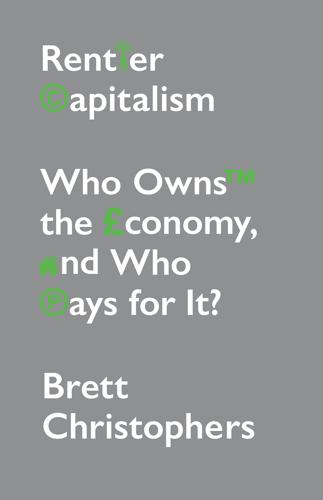
Rentier Capitalism: Who Owns the Economy, and Who Pays for It?
by
Brett Christophers
Published 17 Nov 2020
Where privatization became a watchword of post-1970s UK governments, especially Conservative governments, nationalization had been a watchword of the Labour government that came to power in 1945 after the end of World War II. The UK’s major utility sectors were thought to be in need of privatization in the neoliberal era only because they had been brought under state ownership a few decades earlier. Moreover, as Chris Rhodes and his co-authors have noted, a ‘ “post-war consensus” between the political parties supporting state involvement in industry remained until the 1970s’.3 Even then, they continue (citing David Parker’s ‘official history’ of UK privatization), change came only haltingly: [M]oves to privatise various bodies were tentative or motivated by necessity and ‘did not reflect a belief within Government that state industries should be privatised.’
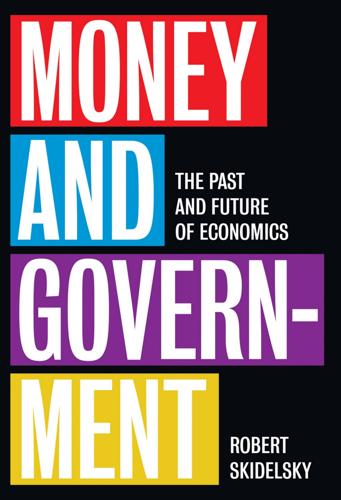
Money and Government: The Past and Future of Economics
by
Robert Skidelsky
Published 13 Nov 2018
T h e E m e rg e nc e of t h e Cou n t e r- ort hodox y The revolt against the Keynesian policy orthodoxy is popularly, and rightly, associated with the Chicago economist Milton Friedman. However, Friedman built on an undercurrent of dissatisfaction with the Keynesian approach to economic policy which had started long before Keynesian policy failures gave it political voice. The origins of an organized ‘counter-orthodoxy’ – the intellectual and political reaction to the post-war consensus – can be traced back to the 1938 ‘Colloque Walter Lippmann’, a conference arranged by the French philosopher Louis Rougier to discuss Lippmann’s 1937 book An Enquiry into the Principles of the Good Society. It was at 174 t h e t h e ory a n d p r ac t ic e of mon e ta r i sm the colloquium that the German economist Alexander Rüstow coined the term ‘neo-liberalism’ to describe the intellectual movement that sought to reboot the ‘classical’ liberalism of the pre-Great Depression era, and which had begun with debates in the universities of Vienna, Freiburg and Paris and the LSE.

Roller-Coaster: Europe, 1950-2017
by
Ian Kershaw
Published 29 Aug 2018
Only the competitiveness of the free market liberated from state controls, argued Hayek, was compatible with democratic freedom. Hayek wrote in forceful language, understandable not just by other economists. It turned economic theory into a fully fledged social and political ideology. This would pose a fundamental challenge to the entire precepts that had underpinned the post-war consensus on the welfare state, which had presumed high levels of taxation and centralized government control of an economy resting on partly nationalized industry and a large public sector. In reality, governments would continue to mix parts of Keynesianism with monetarism. But the breakthrough of monetarism to official recognition as the new orthodoxy in two countries, Britain and the United States, was close.

In Europe
by
Geert Mak
Published 15 Sep 2004
Jobs are easily lost and never found again. A lifetime's savings can easily be stolen … The prevailing mood is one of general fear and apprehension.’ For ten years Thatcher damned equality and extolled the virtues of inequality. Inequality was the key to her ideology, the driving force behind her success. In this way, following the post-war consensus ideology, she set a new tone. And, despite her dubious achievements, this tone was adopted by an increasing number of European countries in the 1990s. Four decades after the war, the sense of togetherness, the solidarity after all the shared hardships, had run its course. It is the morning after in Llangynog.